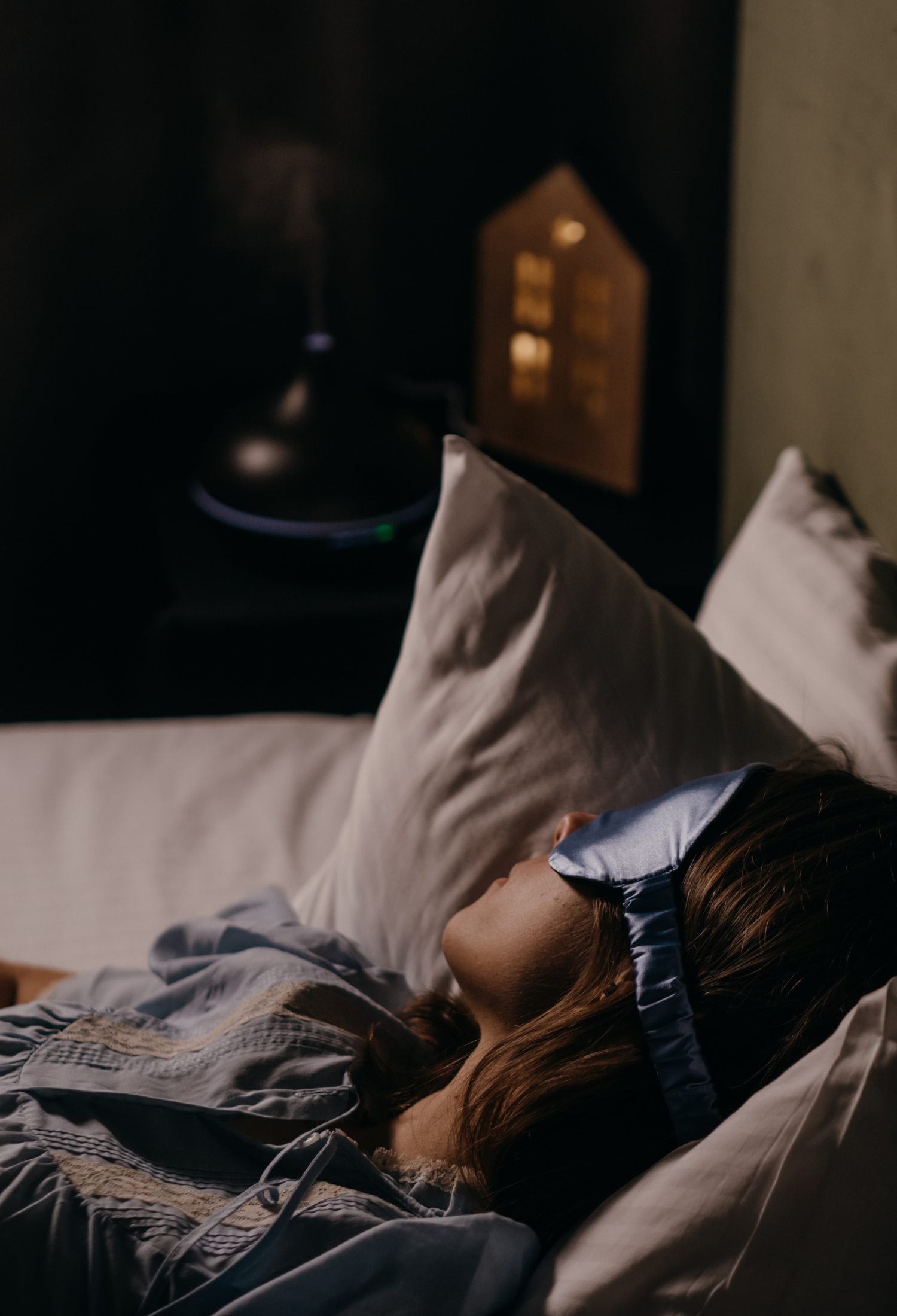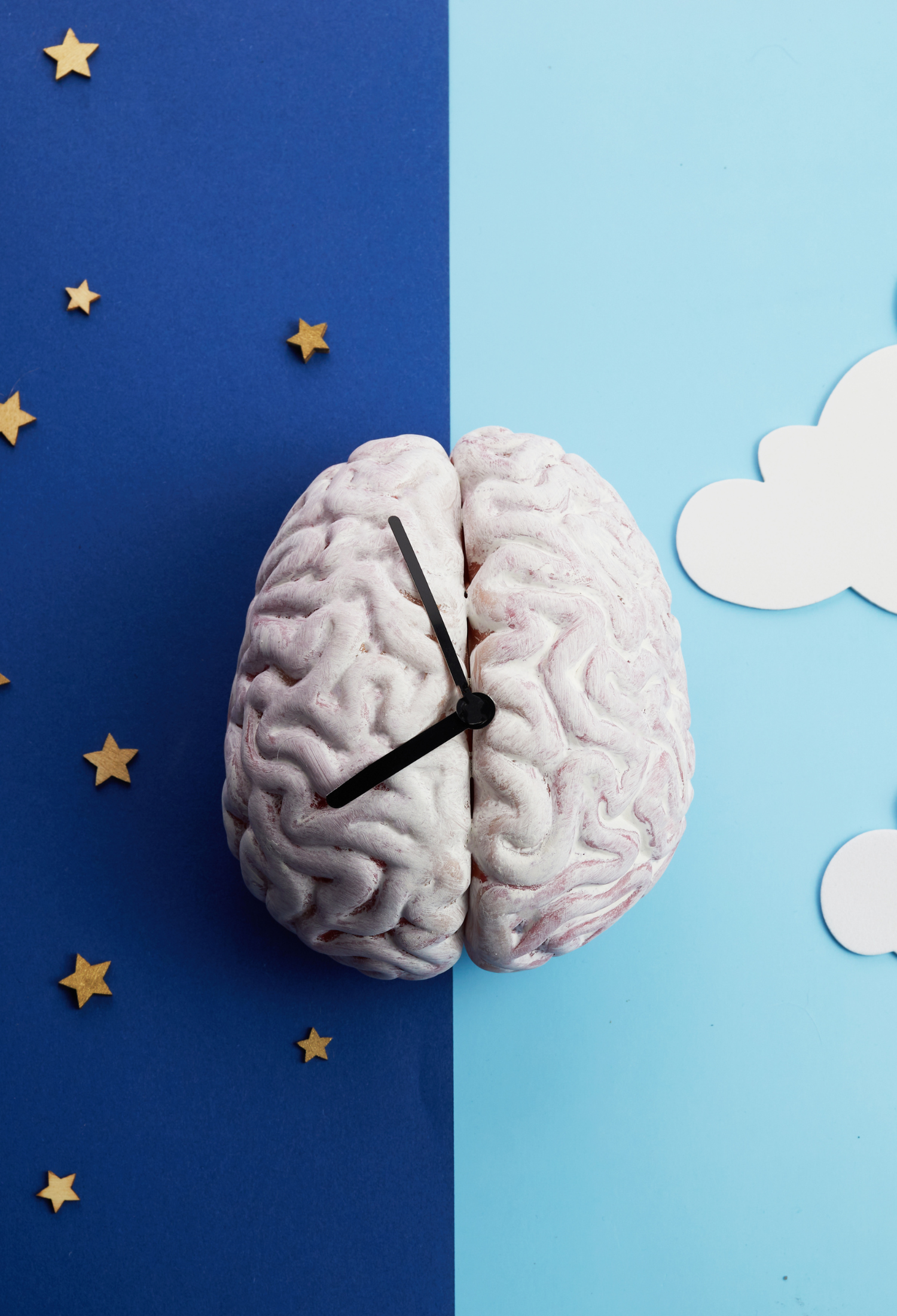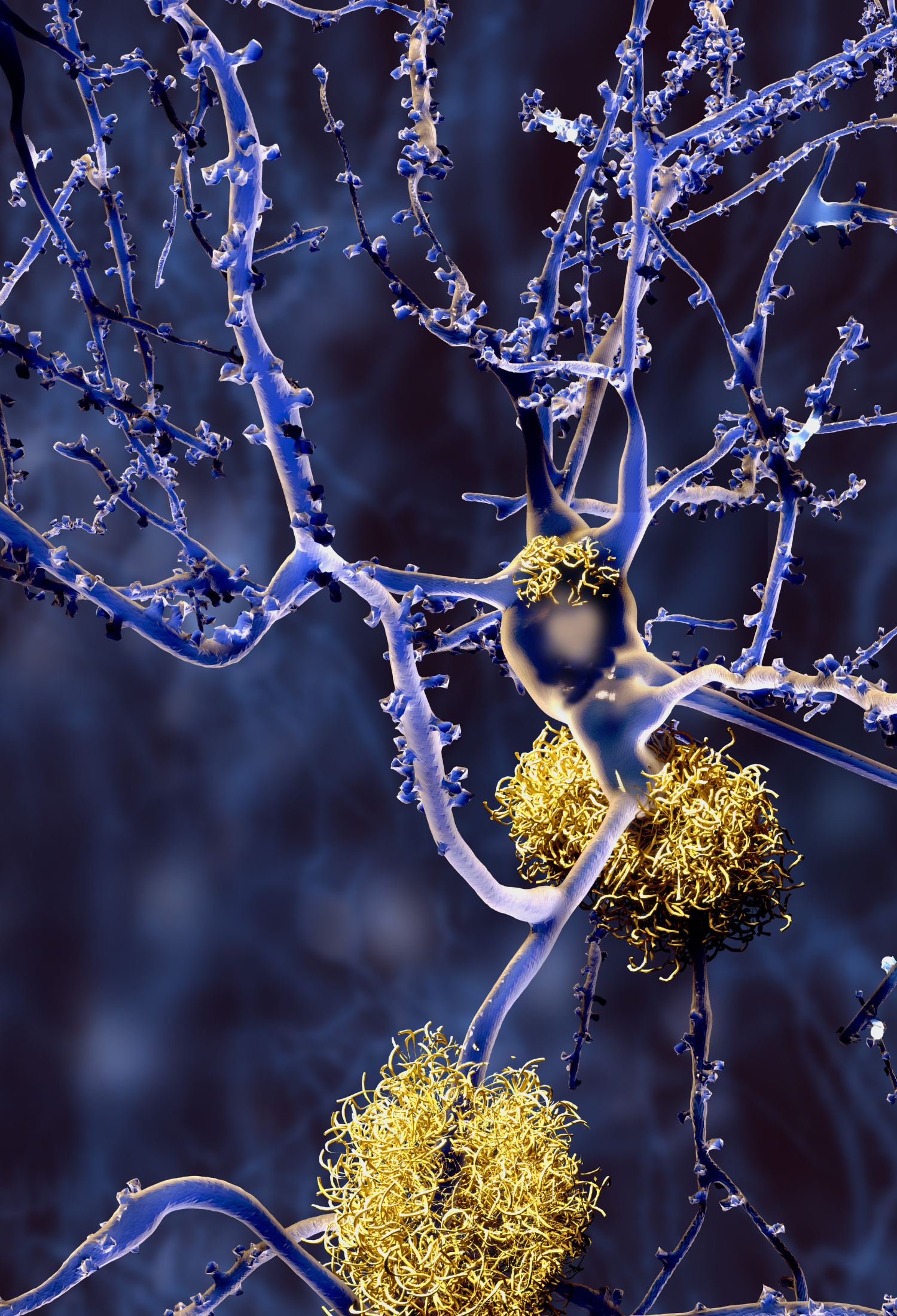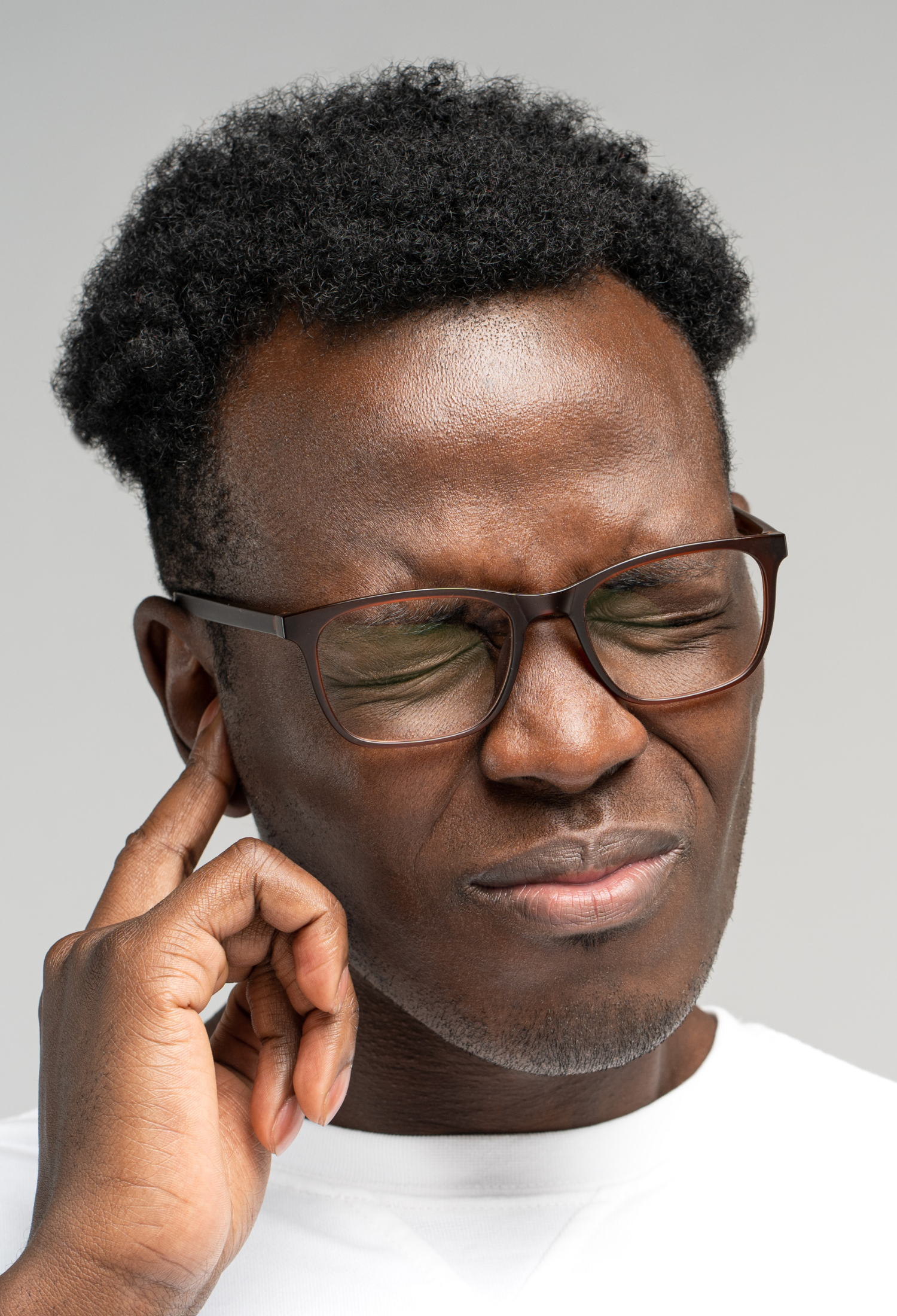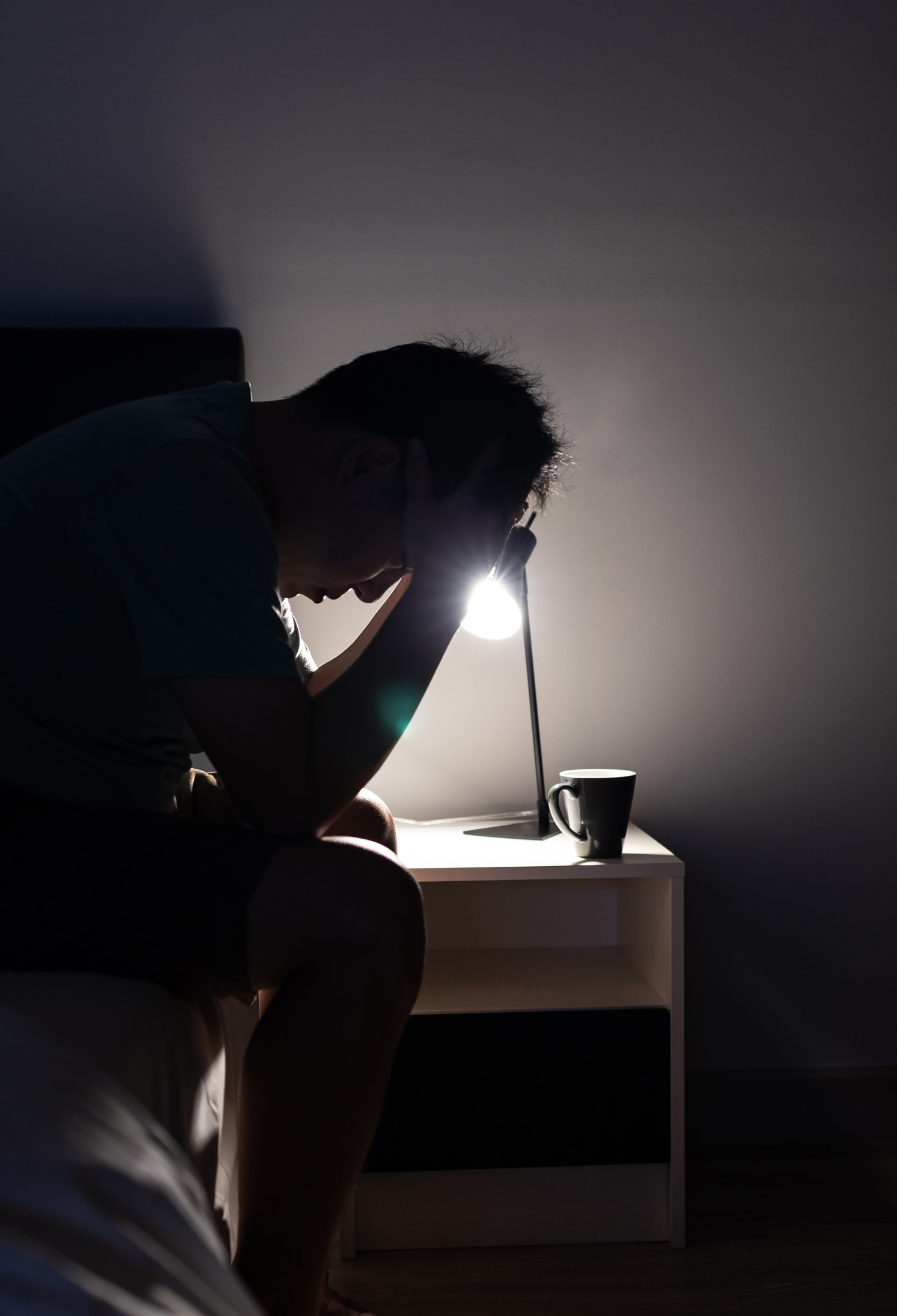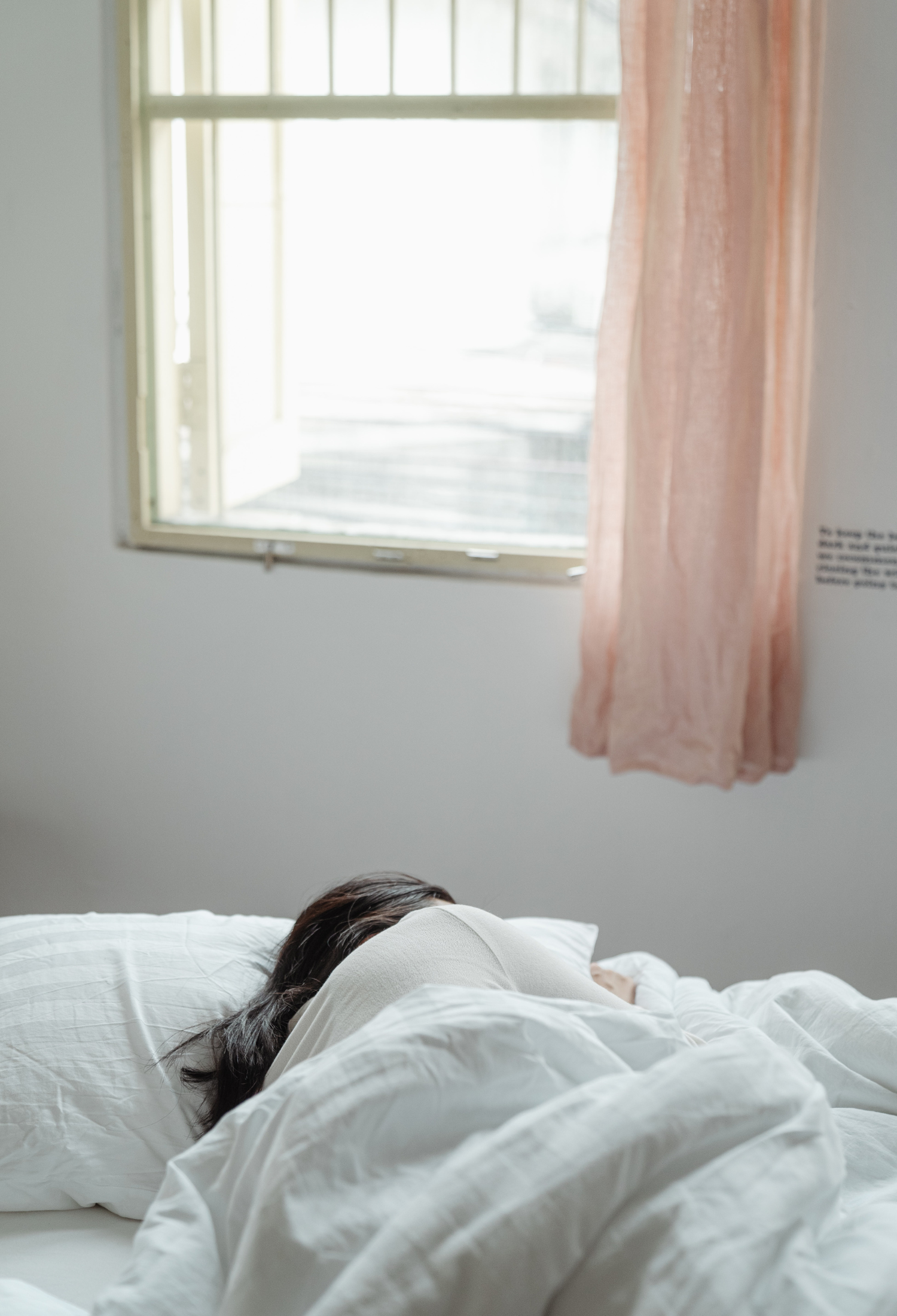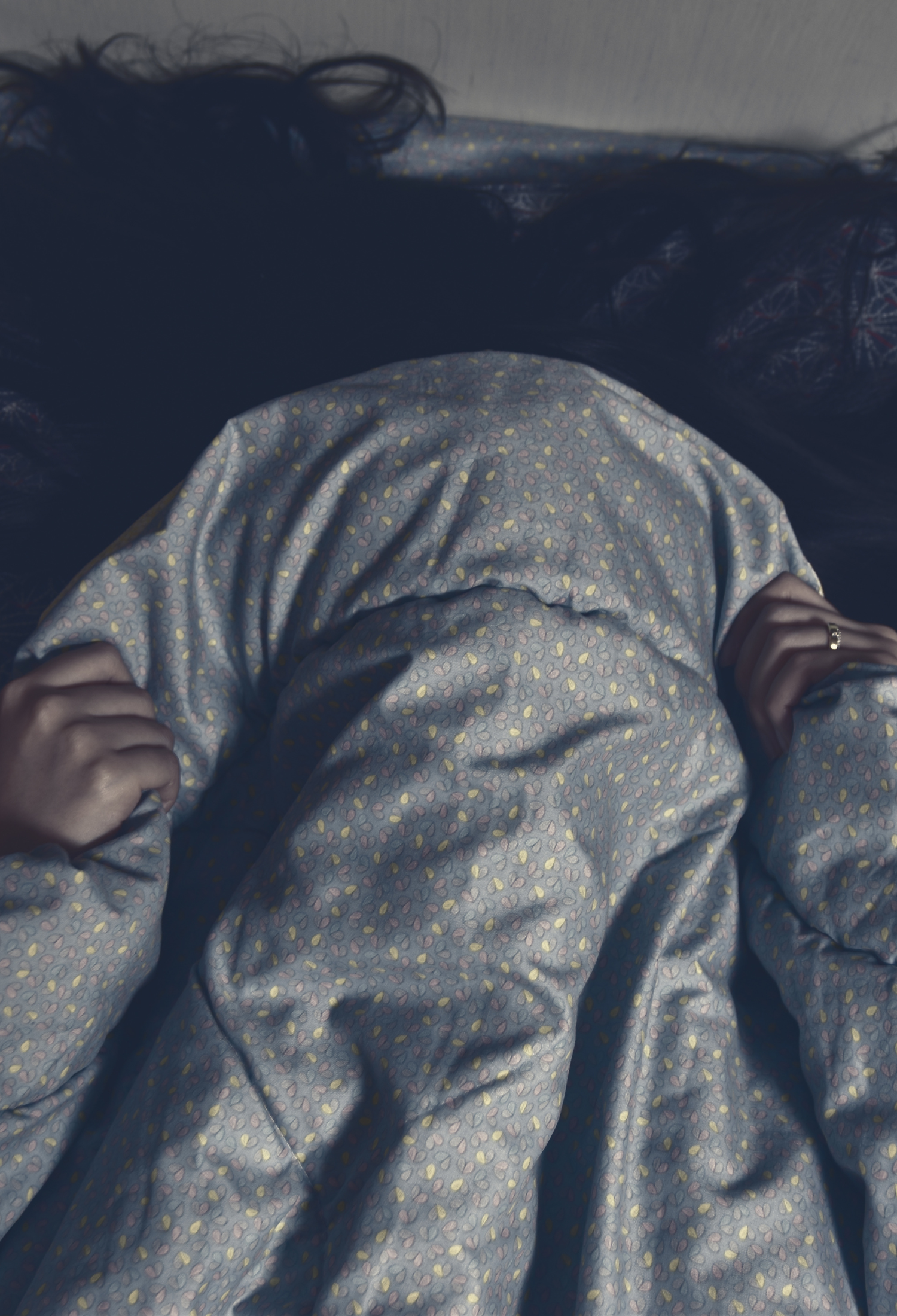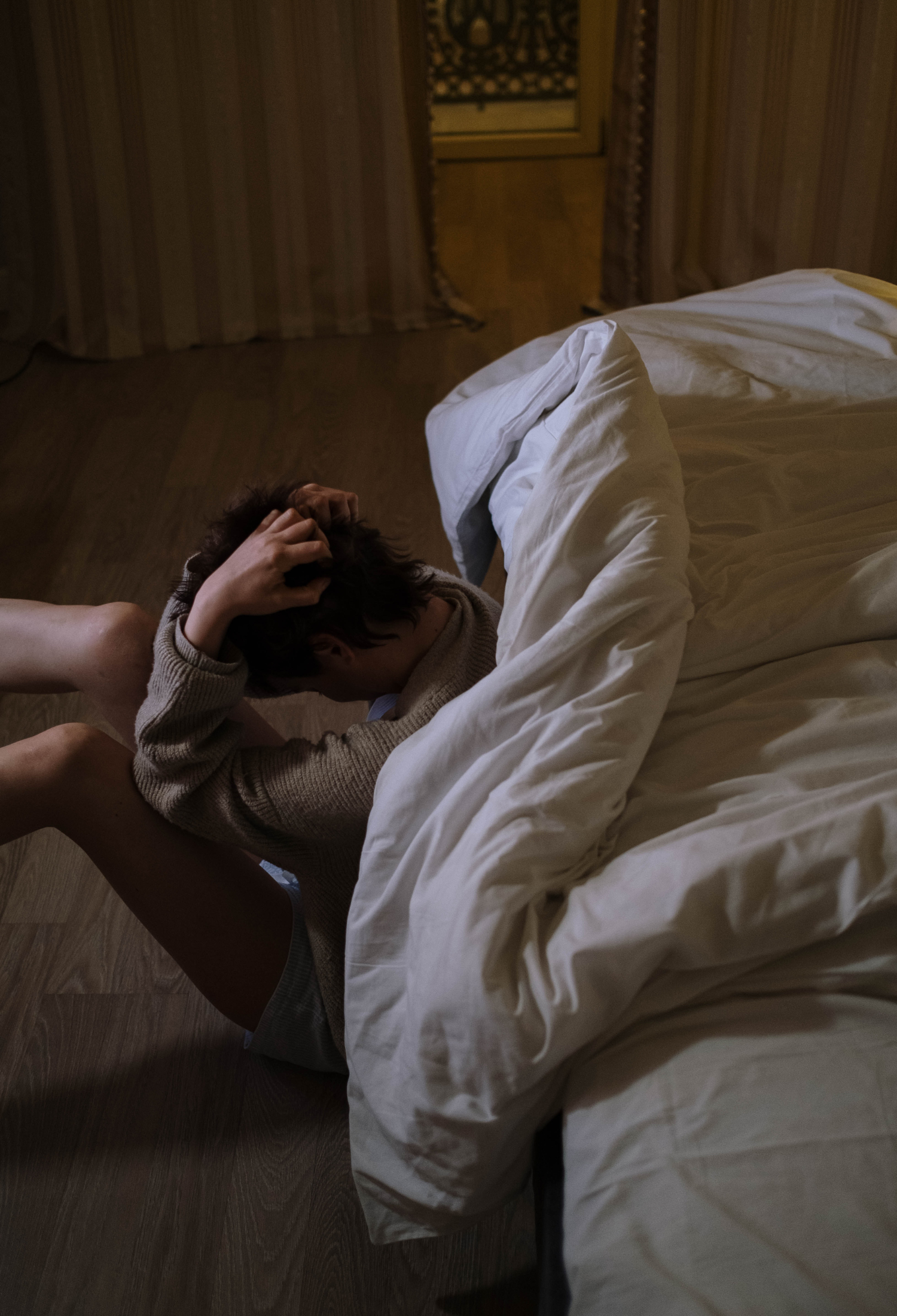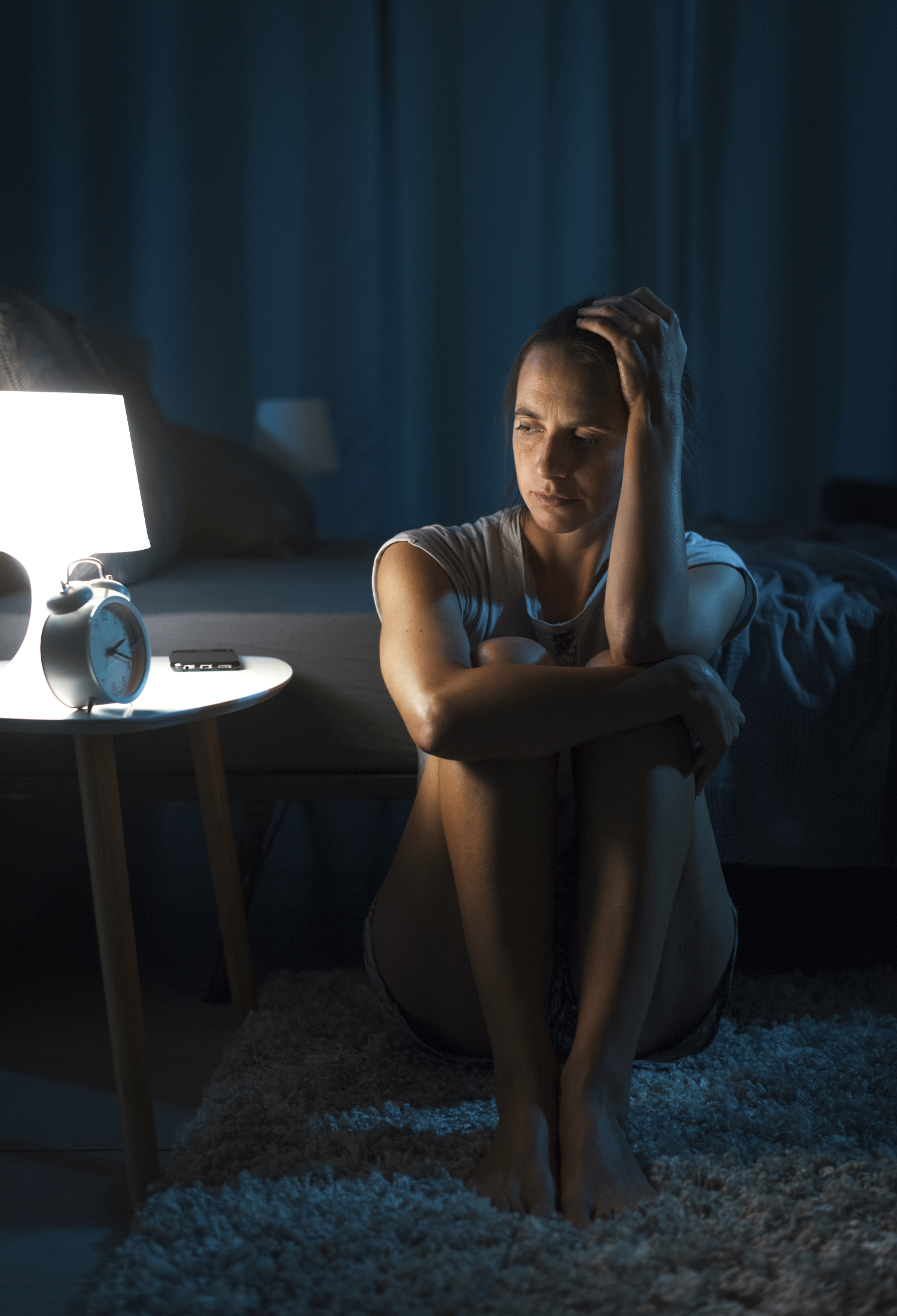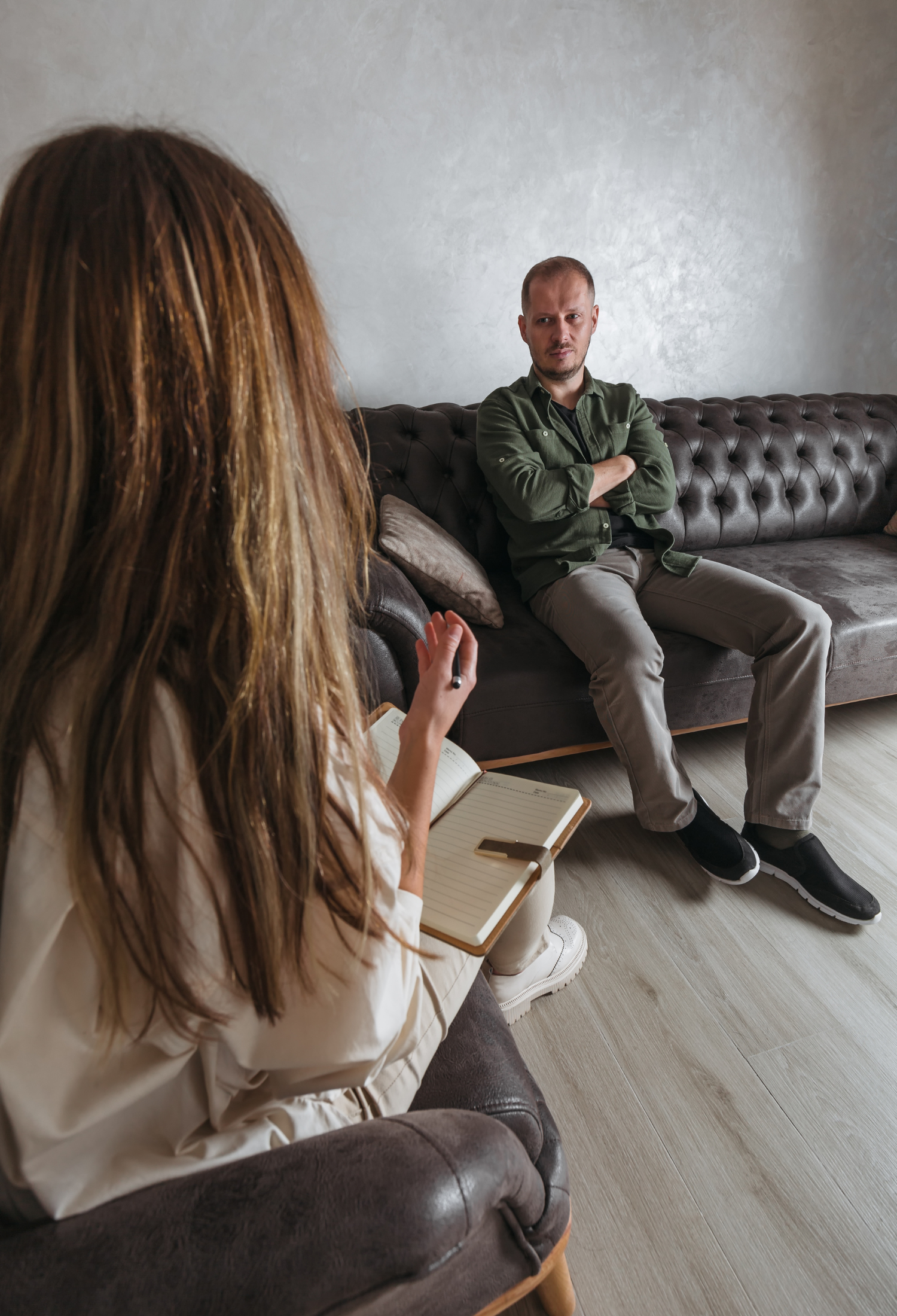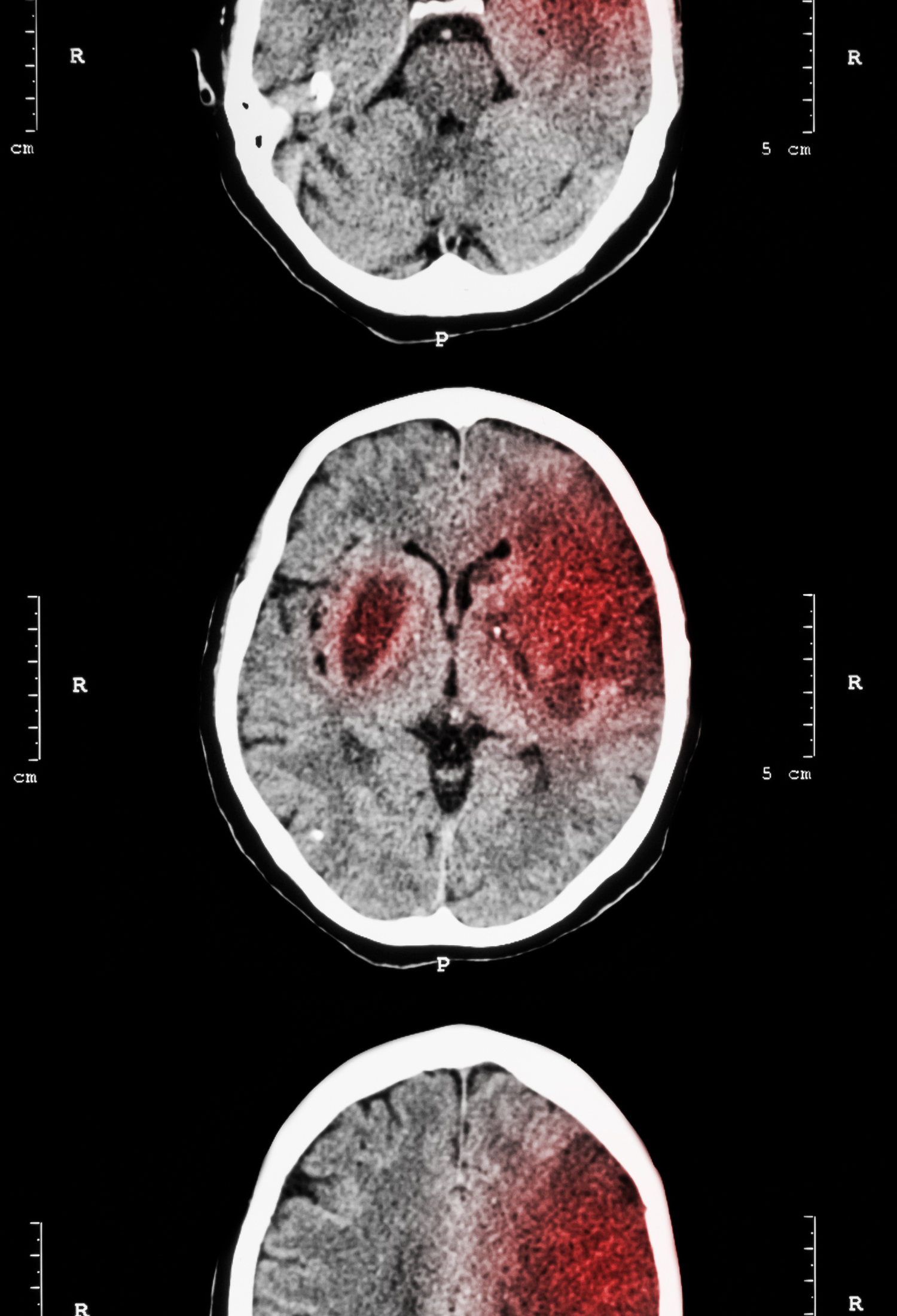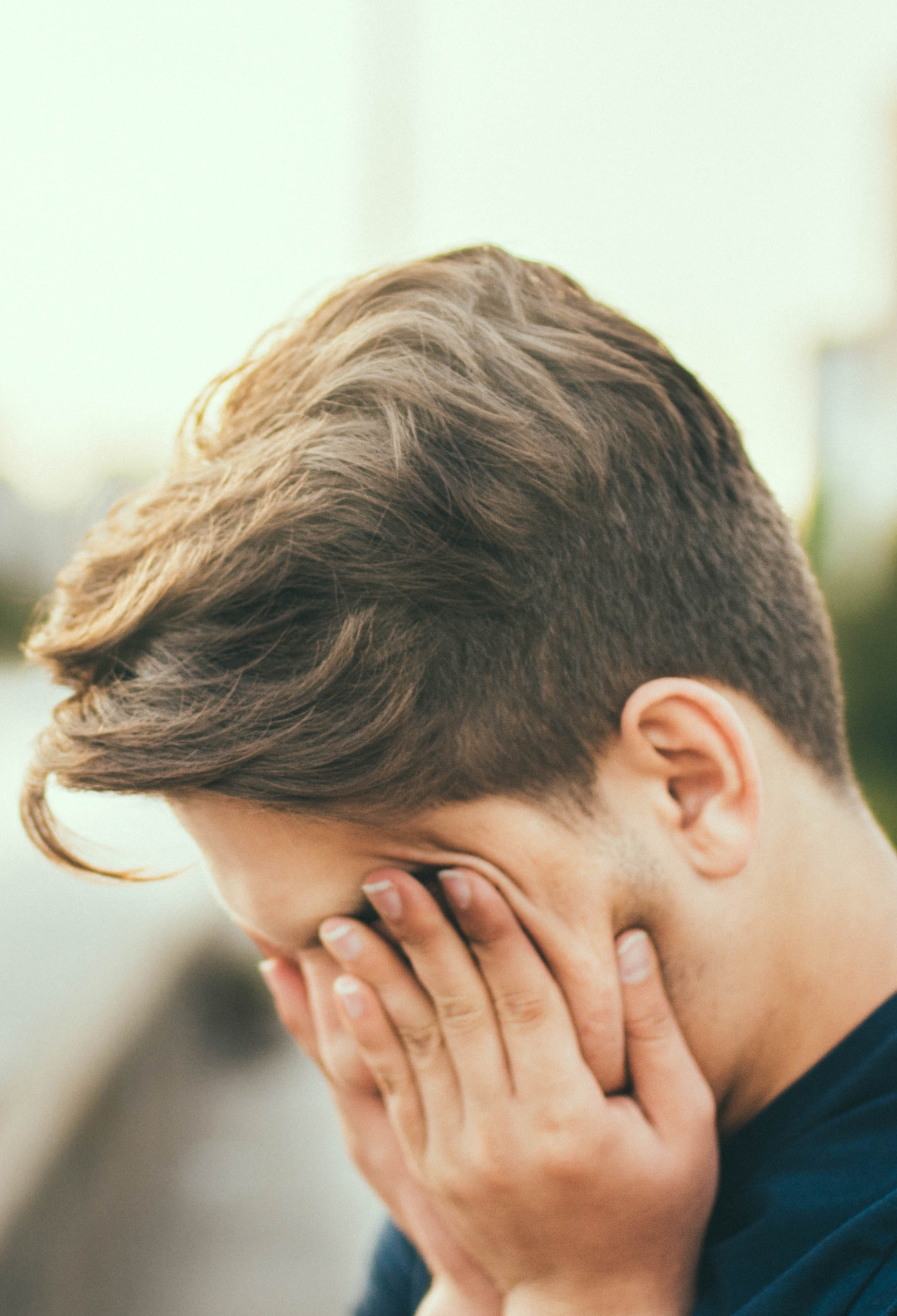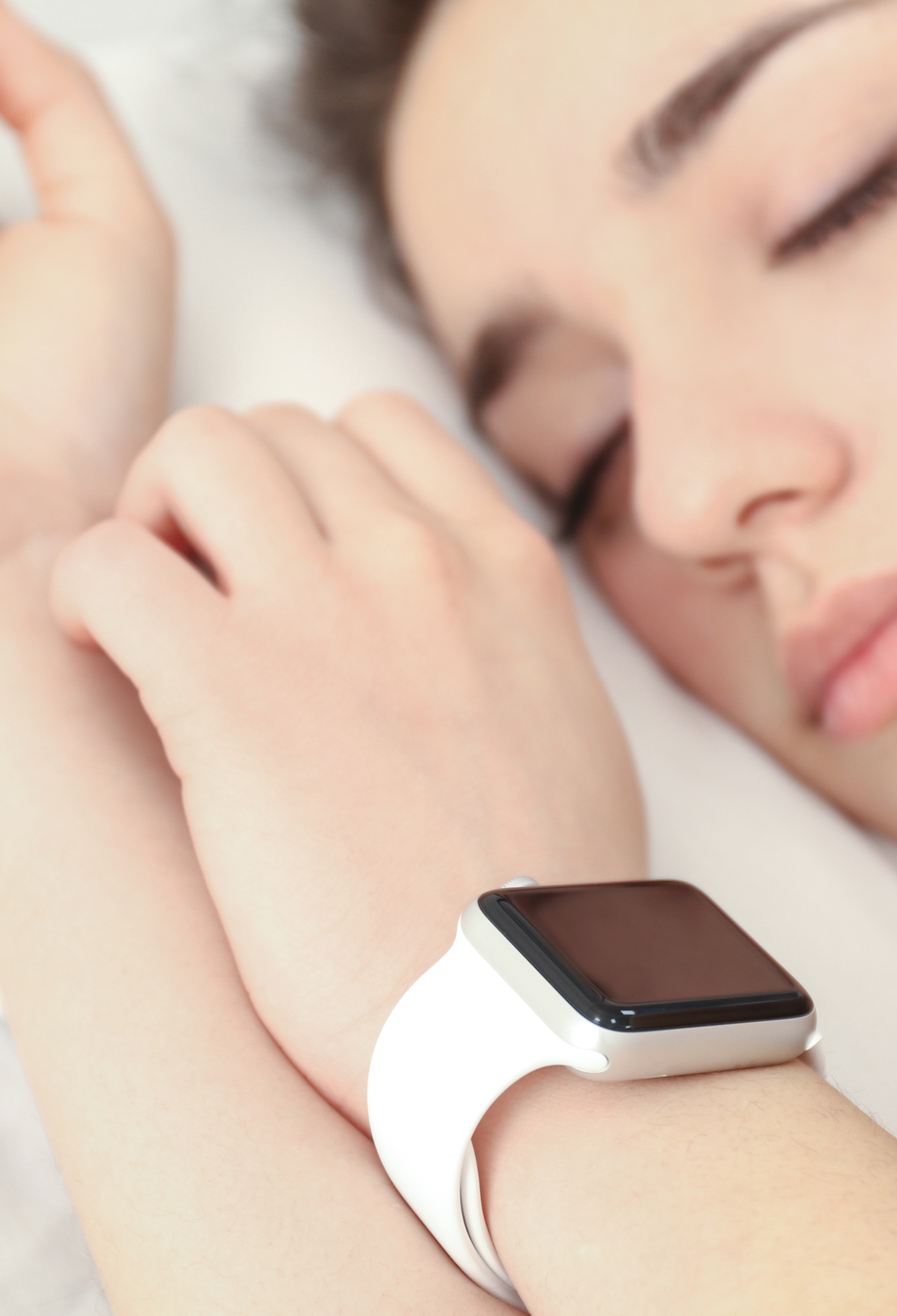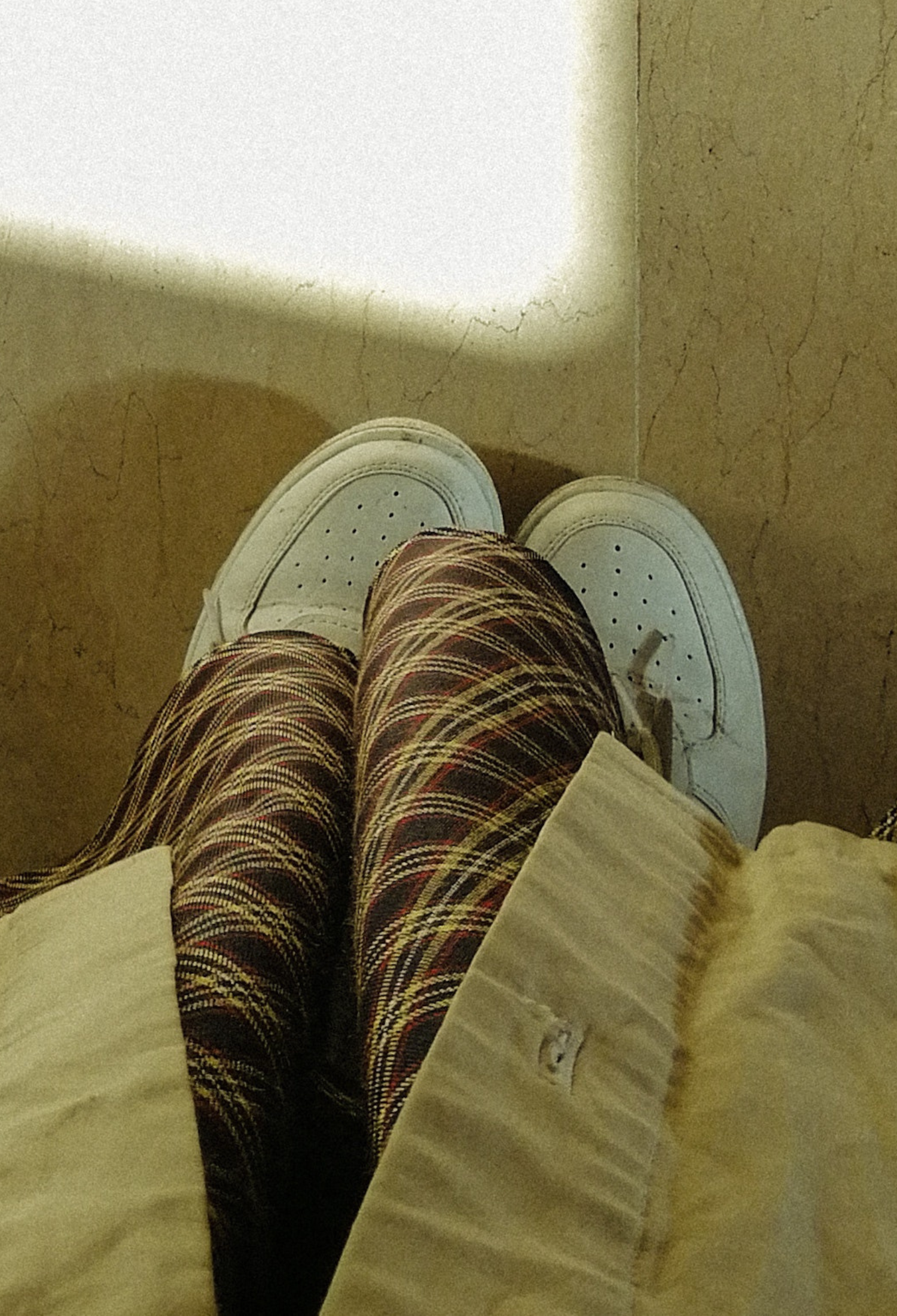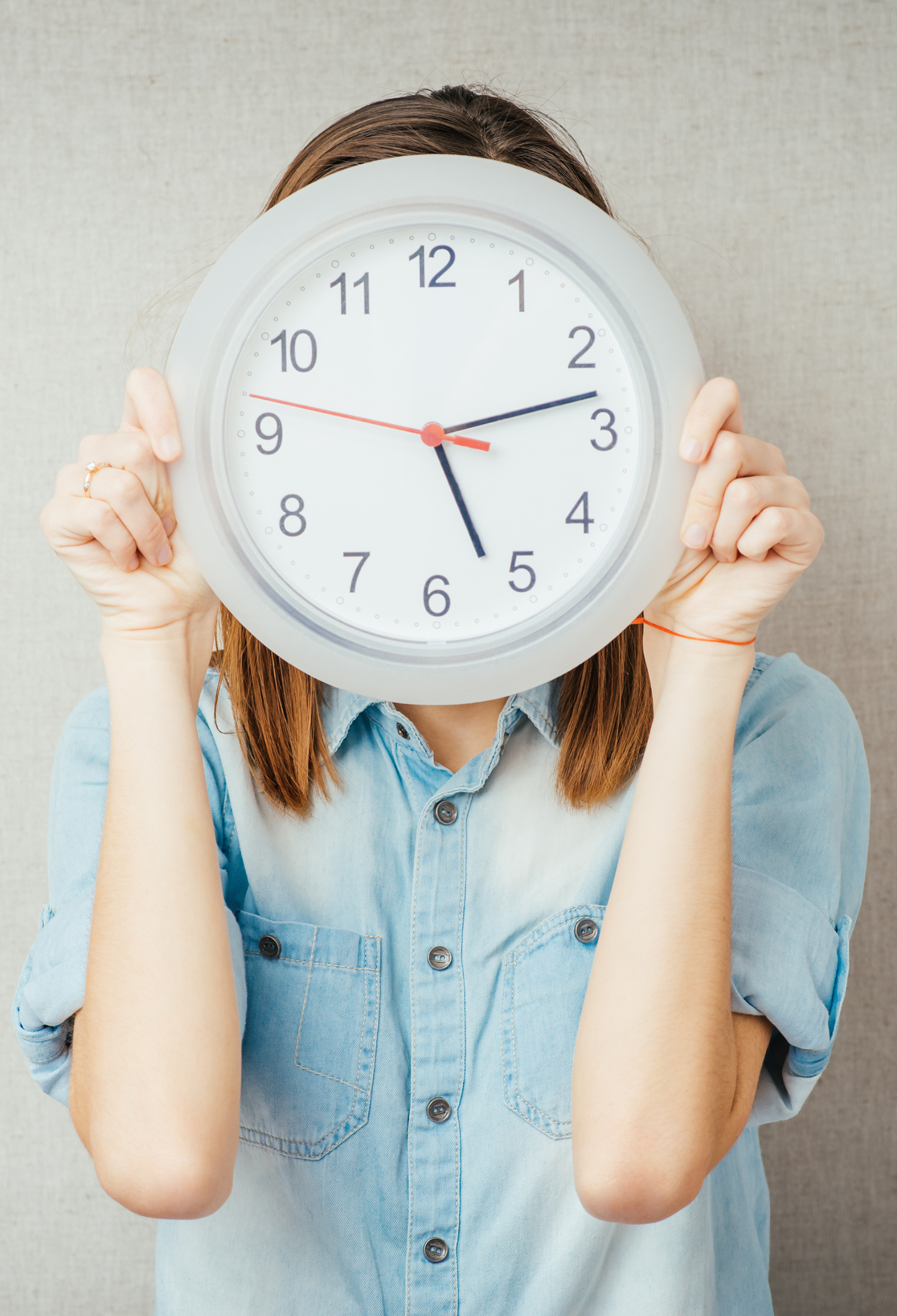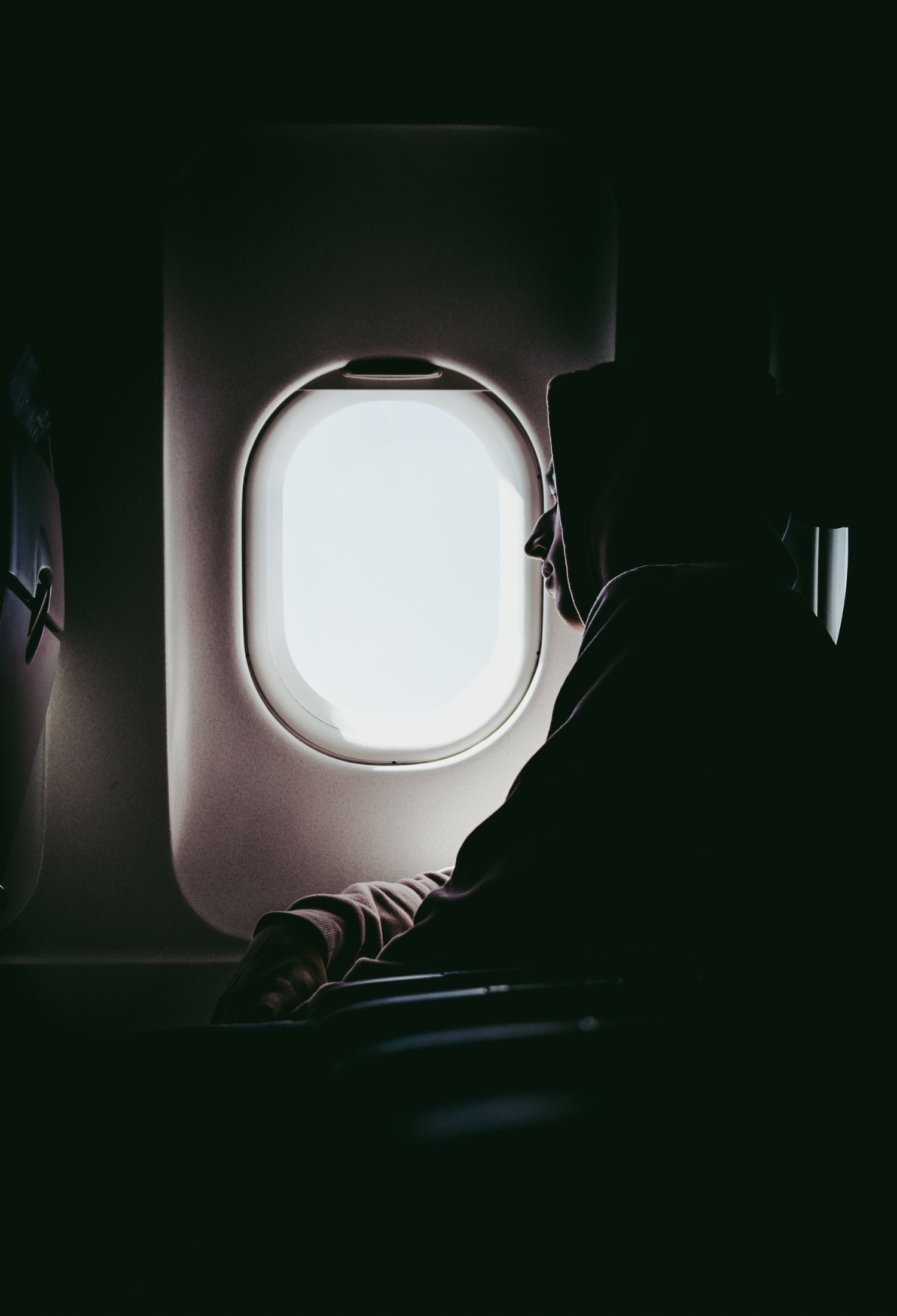Sleep and circadian rhythm in brain and mental health.
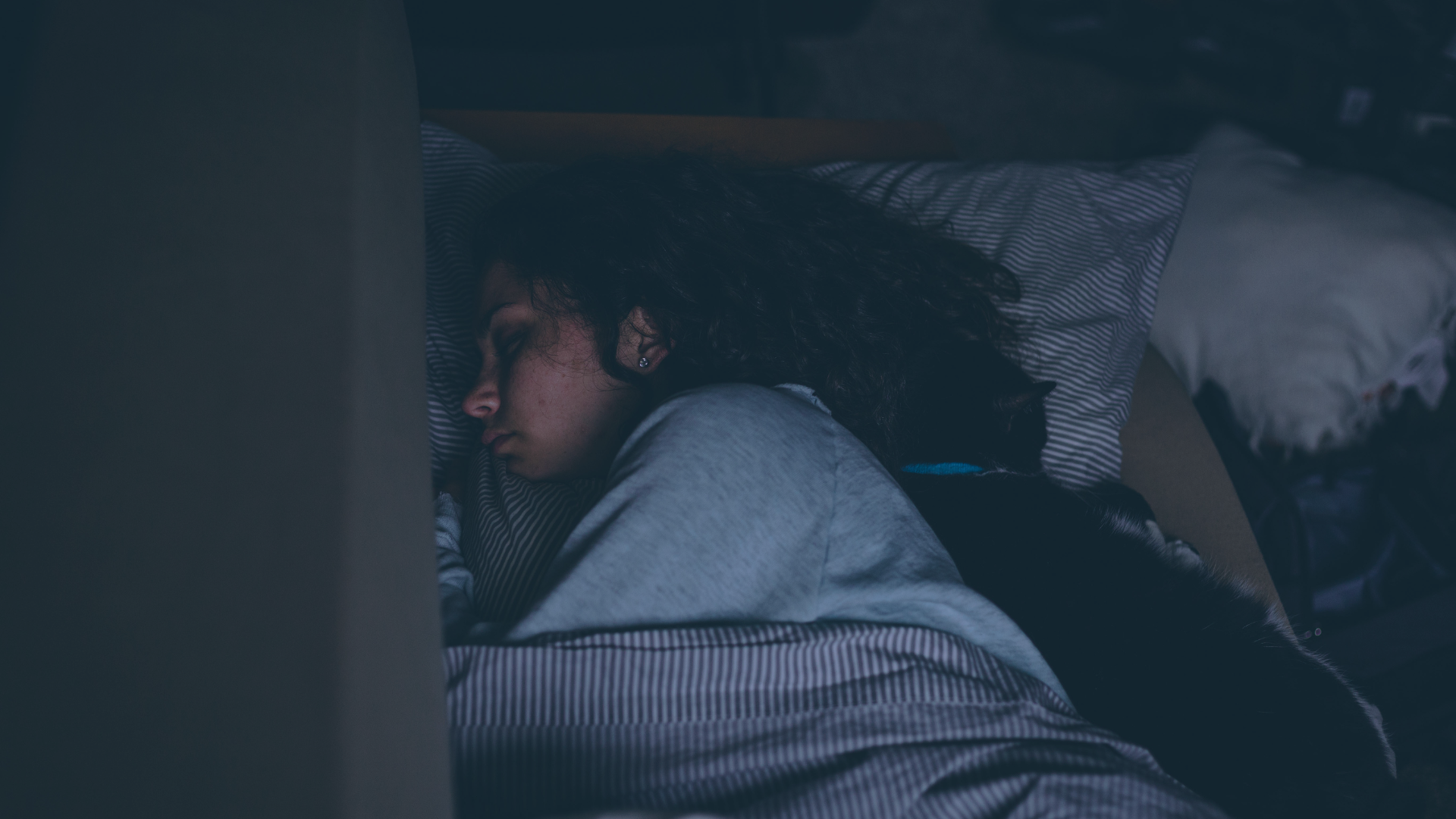
We spend about a third of our lives asleep, but we still don’t know why.
Sleep is a fundamental biological process and is vital for our health. Insufficient or disrupted sleep has major health, societal and economic implications, but despite decades of research many fundamental questions remain.
Studies have shown that the UK public is under-sleeping by an average of almost an hour a night – the equivalent of losing an entire night’s sleep over the course of a week, affecting our ability to lead a healthy lifestyle.
Experts at Oxford are leading the way in analysing how sleep affects the brain, how it impacts our mental health and how it can be used in the rehabilitation of stroke patients. They’re analysing how the COVID-19 pandemic impacted dreams, and how digital sleep interventions can improve our wellbeing.
Sleep and circadian rhythm neuroscience.
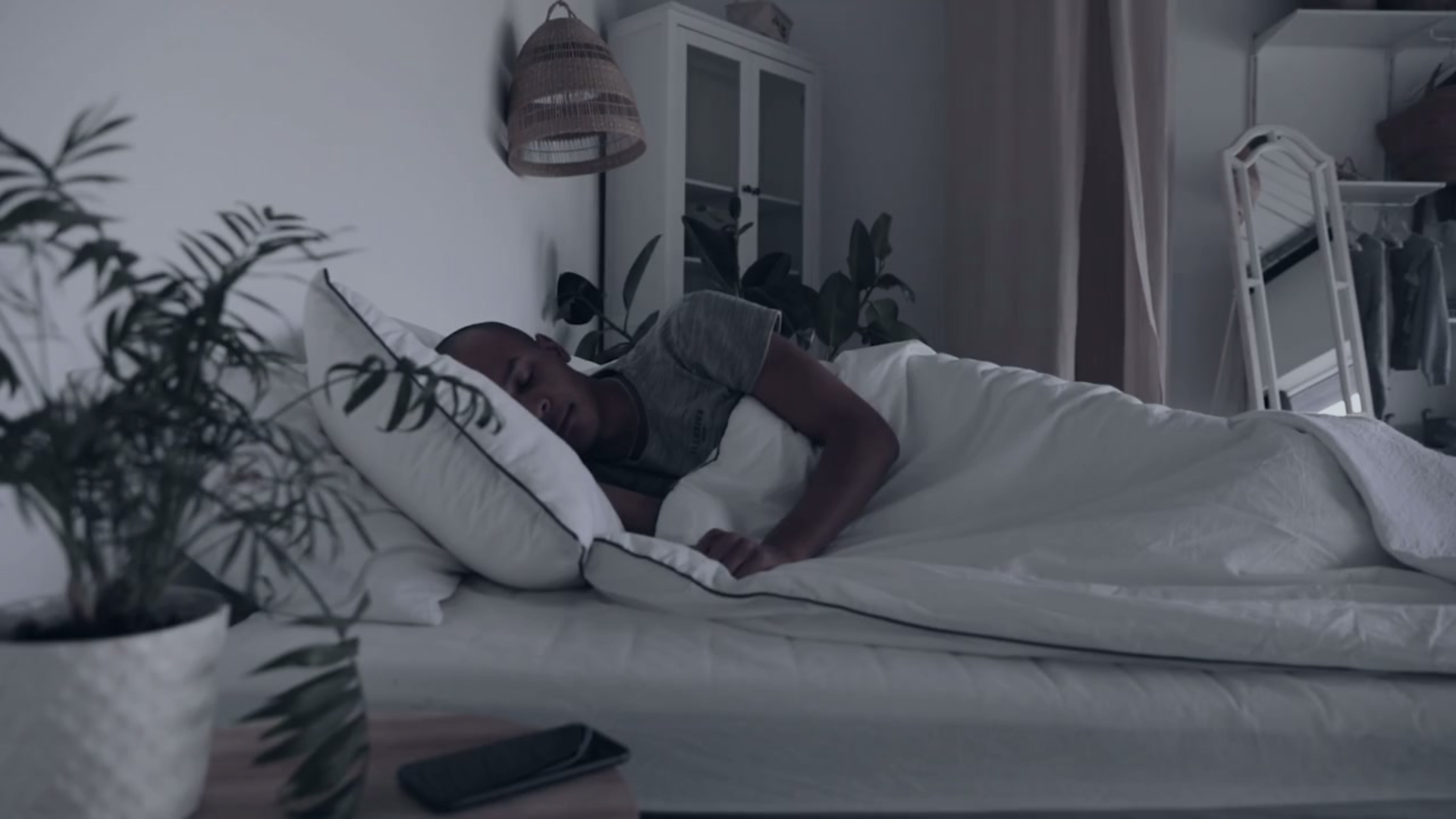
The neuroscience of sleep.
Sleep is a state arising from an interaction between multiple brain regions, neurotransmitter pathways and hormones.
Understanding the physiological basis of sleep regulation is crucial in understanding the role of sleep and sleep disruption in disease.
Poor sleep is among the most prevalent complaints observed in epidemiological studies, and the second most common overall complaint recorded in primary care settings.
Sleep is a highly complex phenomenon, yet fundamental questions – such as why sleep deprivation impacts brain function – are as yet unanswered.
Oxford’s Neuroscience of Sleep group addresses the way sleep works, such as the link between sleep and cellular stress, and sensory processing during sleep.
The group is led by Professor of Sleep Physiology Vladyslav Vyazovskiy and Professor Russell Foster, Head of the Nuffield Laboratory of Ophthalmology and the Sleep and Circadian Neuroscience Institute (SCNi).
Professor Russell Foster's TEDTalk on the neuroscience of sleep
The Vyazovskiy Group, from the Department of Physiology, Anatomy and Genetics, focuses on sleep and brain behaviour.
Sleep is traditionally defined and characterised by behavioural and electrophysiological criteria. During sleep global brain activity is distinctly different from an awake state, as we are immobile and less responsive to our environment.
Electrophysiology:
The part of physiology concerned with the electrical phenomena associated with bodily processes, such as nervous and muscular activity
While our bodies sleep, we transition between sleep stages, alternating between non-rapid eye movement (NREM) sleep, rapid eye movement (REM) sleep and wakefulness. The transition between these stages are controlled by structures in the brain – though the genetic regulation of this is not well understood.
Research undertaken by experts, including Professor Vyazovskiy, Dr Laurence Brown and Professor Stuart Peirson, and colleagues at MRC Harwell and University College London, has shown that changes in the way that neurons communicate with each other in the brain affect our ability to move between sleep and wake stages.
These insights will help us understand how sleep quality is affected in humans, and will contribute to new treatments for sleep disorders.
Further research by the Vyazovisky Group, in collaboration with Professor Russell Foster, Professor Ed Mann and colleagues from Toho University in Japan and MIT in the USA, shed new light on the role of the hypothalamus in the transition between sleep and week states.
Professor Vladyslav Vyazovskiy on the Sleep Science Podcast
Circadian rhythm.
Life on Earth is dominated by predictable changes in the environment as we cycle through day and night, and almost all living creatures have evolved internal time-keeping machinery to make the most of these changes.
These 24-hour rhythms are called circadian, and the timing system, the circadian clock.
In humans and other vertebrates, the central clock, which receives light input, is in a cluster of nerve cells in the brain called the suprachiasmatic nucleus (SCN).
The sleep/wake cycle is perhaps the most familiar 24-hour cycle, and major changes occur as we transition from the fed state, during wakefulness, to the fasted state, during sleep.
Many human diseases show changes in severity during the day, with commonly used medicines working by regulating pathways in the body that change with time of day, meaning the time when medication is taken is an important consideration.
Oxford Sparks explanation of circadian rhythms
Small changes in brain function can have a big impact on sleep.
Sleep and Circadian Rhythm Disruption (SCRD) occurs when our natural circadian rhythms are pushed out of sync. Disrupted sleep can then lead to increased stress hormones, heart disease, increased risk of cancer, and emotional and cognitive problems.
Researchers from the Sleep and Circadian Neuroscience Institute (SCNi), led by Professors Russell Foster and David Ray, are aiming to understand the mechanisms that generate and regulate sleep and circadian physiology and behaviour.
Physiology:
Relating to the branch of biology that deals with the normal functions of living organisms and their parts
Their team is defining the mechanisms and nature of sleep and circadian rhythm disruption across healthy aging and disease, and how societal demands give rise to sleep and circadian rhythm disruption.
They’re applying their knowledge for the development of evidence-based and condition specific therapeutics and interventions, and developing training resources and sleep education for healthcare practitioners and other key stakeholders.
They hope that this knowledge can be transferred to multiple sectors, including scientists, healthcare professionals, patients and caregivers.
One of the SCNi’s key research themes is the Neuroscience of Circadian Rhythm.
Led by Associate Professor Aarti Jagannath, with Professor Russell Foster, the group is aiming to discover the underlying processes that lead to the generation and regulation of circadian rhythms in the brain, and how this timing system regulates much of our body – including the sleep/wake cycle.
Professor Russell Foster on circadian rhythms
Impacts on brain health.
Sleep and Circadian Rhythm Disruption (SCRD) – a term developed by researchers at the Sleep and Circadian Neuroscience Institute (SCNi) – is a feature shared by some of the most challenging diseases of our time.
Mental illnesses such as schizophrenia, bipolar disorder and depression, and neurological conditions such as Alzheimer’s, stroke and multiple sclerosis are all impacted by SCRD – as are developmental disorders such as autism, and serious disorders of the eye.
Researchers within the SCNi are focusing on the role of sleep and circadian rhythms in illness, including the relationship between sleep, circadian rhythm and the treatment of intensive care unit (ICU) patients and the impact of ocular disorders on sleep and mood.
Neurodegeneration:
Degeneration of the nervous system, especially of neurons in the brain
Led by Professors Andrea Németh and Kevin Talbot, the Neurodegeneration research group at the SCNi are investigating Sleep and Circadian Rhythm Disruption (SCRD) treatment as a possible approach to improve the overall health of patients, and in some conditions slow the progression of diseases.
They are currently working to define the nature of, and causal relationships between, SCRD, neurodegenerative disease, pain and stroke.
By doing so they can then determine the next steps for the prevention, and improvement of, disruptions to sleep and circadian rhythm.
250 million
people worldwide are affected by tinnitus
Researchers from the Department of Physiology, Anatomy and Genetics have also been analysing the impact of sleep on tinnitus, a common phenomenon defined by a constant phantom sound generated by the brain.
There is currently no cure for tinnitus, and the condition can severely impact a patient’s quality of life, causing many to experience depression or anxiety.
The review, led by DPhil student Linus Milinski and Associate Professor Victoria Bajo Lorenzana, addressed the relationship between sleep and tinnitus for the first time.
In bringing together the fields of tinnitus and sleep research, the experts have identified a clear relationship between phantom sounds, sleep and sensory disconnection.
Additional collaborators in the review included Dr Fernando Nodal and Professor Vladyslav Vyazovskiy, with the review’s findings having important implications for tinnitus research, diagnostics and potential therapeutic interventions.
Associate Professor Victoria Bajo Lorenzana hopes that the reviews findings could ‘help researchers to identify a time window where delivering a treatment for tinnitus will be most effective before it develops into a permanent condition.’
Researchers from the Department of Physiology, Anatomy and Genetics have also been analysing the impact of sleep on tinnitus, a common phenomenon defined by a constant phantom sound generated by the brain.
There is currently no cure for tinnitus, and the condition can severely impact a patient’s quality of life, causing many to experience depression or anxiety.
The review, led by DPhil student Linus Milinski and Associate Professor Victoria Bajo Lorenzana, addressed the relationship between sleep and tinnitus for the first time.
In bringing together the fields of tinnitus and sleep research, the experts have identified a clear relationship between phantom sounds, sleep and sensory disconnection.
Additional collaborators in the review included Dr Fernando Nodal and Professor Vladyslav Vyazovskiy, with the review’s findings having important implications for tinnitus research, diagnostics and potential therapeutic interventions.
Associate Professor Victoria Bajo Lorenzana hopes that the reviews findings could ‘help researchers to identify a time window where delivering a treatment for tinnitus will be most effective before it develops into a permanent condition.’
Linus Milinski outlines the review into tinnitus and sleep
Impacts on mental health.
Although clinically recognised, the precise nature, cause and effects of Sleep and Circadian Rhythm Disruption (SCRD) in mental illness are poorly defined – and its treatment invariably neglected.
Led by Professors Colin Espie and Daniel Freeman, researchers focusing on mental health at the Sleep and Circadian Neuroscience Institute (SCNi) are addressing the causal relations of SCRD and developing techniques for early intervention, hoping to prevent some forms of psychiatric illness.
They have already developed new methods for assessing and analysing circadian rhythms and sleep in the real world, and a novel intervention for complex sleep problems in patients with schizophrenia.
They have provided the first randomised control trial to treat sleep problems in psychiatric inpatients, and developed the largest ever trial of insomnia treatment, using a web-based intervention.
‘Treating sleep problems in mental illness will not only improve the health and quality of life for countless individuals and their caregivers, but will also have a massive impact on the economics of health care.’
The relationship between mental illness, sleep and circadian rhythm disruption was first described in the late 19th century, and today such disruption is reported in as many as 80% of patients with schizophrenia.
Professor Russell Foster highlights how sleep abnormalities have been identified in individuals prior to mental illness, and how such findings raise the possibility that Sleep and Circadian Rhythm Disruption (SCRD) may be an important factor in early diagnosis of such conditions.
Professor Russell Foster on how sleep could be the key to tackling mental illness
External impacts on sleep.
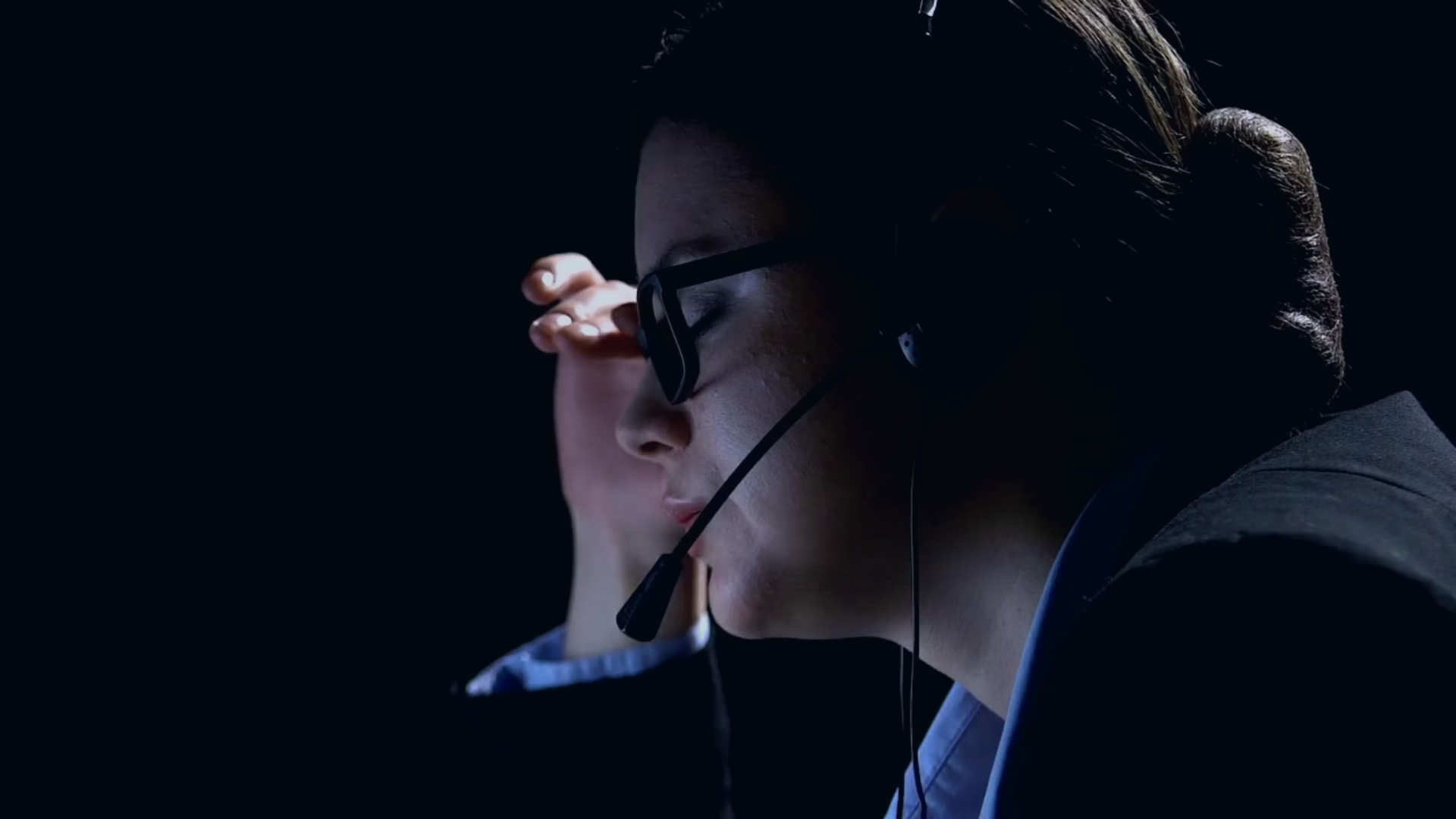
Analysing sleep need.
A report co-authored by Professor Colin Espie from the Nuffield Department of Clinical Neurosciences has warned that the UK public is under-sleeping by an average of almost an hour every night – but what impacts our quality of sleep, and how much of it we need?
54%
of people surveyed felt stressed as a result of poor sleep
A study by the Vyazovskiy group from the Department of Physiology, Anatomy and Genetics suggests that how and where we spend our time while awake impacts how much we need to sleep.
Led by DPhil student Linus Milinski, the study investigated whether changes in an animal’s environment would affect its wake behaviours, and whether this in turn would affect its subsequent sleep.
Electroencephalogram (EEG):
A painless test or record of brain activity using small sensors
The study found that during sleep, electroencephalogram (EEG) slow waves – an established marker of sleep need – were lower after wake time dominated by a simple task performance, when compared to wake time spent in an enriched environment.
Further research is needed, but the researchers conclude that wake ‘quality’ is important for sleep – and that environmental factors and motivation are key factors to consider in sleep studies.
‘What we tend to forget is that wakefulness and sleep are defined, by and large, by the interaction of the organism with its environment’
The effects of the night shift and shift work.
Figures from the Trade Union Council show that the number of people in the UK who work night shifts increased by 9% between 2011 and 2016 to 3,135,000 – with most of these working in healthcare, personal protection and communications.
The circadian rhythm however does not usually adjust to night work, and this disruption has been associated with cancer, cardiovascular disease, weight gain, diabetes and depression.
‘The assumption has always been that our bodies adapt to the nightshift. But now neuroscience is beginning to unravel the fundamental mechanism of sleep... and the extraordinary finding is that we don't adapt’
Professor Russell Foster collaborated with visual artist Martin Kohout to raise awareness of the role of sleep in health and wellbeing, and highlight the stories of the nightshift workers who keep London running.
The project, which culminated in a film and book, also saw an exhibition hosted at Auto Italia East in 2018.
Professor Russell Foster speaks to BBC Radio 4 about the effects of working the nightshift
Professor David Ray, who co-directs the Sleep and Circadian Neuroscience Institute with Professor Foster, has also taken part in an innovative project to help support the mental and physical health of shift workers.
Professor Ray, from the Radcliffe Department of Medicine, is part of a project called Night Club, part of the largest ever direct engagement programme in the UK to bring together shift workers and sleep researchers with the aim of improving their sleep.
Based at the Rochdale Infirmary in Greater Manchester, the project will give night shift workers the opportunity to learn about the impact of light on achieving effective spells of sleep, how diet can impact rest and alertness and how insufficient sleep negatively impacts the body clock.
The causal factors of nightmares.
It’s important to understand what can help us achieve a good night’s sleep – but also to explore what contributes to bad dreams.
Stephanie Rek, Dr Bryony Sheaves and Professor Daniel Freeman from the Department of Experimental Psychology recruited 846 people to perform one of the largest ever studies of nightmares in the general population.
Each participant was also assessed for Post-Traumatic Stress Disorder (PTSD) and asked about aspects of their life such as recent divorces or legal trouble, their tendency to worry, how much sleep they get and how much alcohol they drink.
Unsurprisingly, the team found that worrying about the future, or about doing things wrong, was strongly associated with the frequency and severity of nightmares. Interestingly though, they found that there was also a link between the occurrence of nightmares and sleeping for longer.
For example, if you have nine hours sleep instead of six, you have more than doubled your chances of having a nightmare.
COVID-19, dreams and sleep.
During the COVID-19 pandemic, many people reported having odd dreams.
Given the association between dreams and mental health, understanding these changes could provide crucial information about wellbeing during the pandemic.
A study involving Professor Colin Espie, from the Sleep and Circadian Neuroscience Institute (SCNi) at the Nuffield Department of Clinical Neurosciences, explored associations between COVID-19 and dream recall frequency (DRF), and related social, health and mental health factors.
‘In times of high stress and disrupted daily routines, sleep is all the more important for our health and overall wellbeing’
DRF has previously been linked to frequent nocturnal awakenings, which often occur in sleep disorders such as insomnia and rapid eye movement sleep behaviour disorder (RBD).
The study, conducted by a global collaboration of researchers using a survey of nearly 20,000 people in 14 countries, found that DRF was higher during the pandemic than before it, across four continents.
High DRF was frequently associated with female gender, nightmares, sleep talking, sleep maintenance problems, and symptoms of RBD. It was negatively associated with depression and anxiety, suggesting that COVID-19 was reflected in our dreams as an expression of the emotional intensity of the pandemic.
The researchers also investigated the role of sleep and dreams in long-COVID, finding that long-COVID subjects reported a higher rate of fatigue, insomnia symptoms and excessive daytime sleepiness.
‘This study provides further evidence of the impact of sleep on mental health and how we can begin addressing the mental health crisis through evidence-based insomnia interventions’
.
Again collaborating with a global group of researchers, a study co-authored by Professor Espie looked at the prevalence of insomnia, anxiety and depression during the first wave of the COVID-19 pandemic.
Over 22,000 adults from 13 countries completed a web-based survey, with almost a fifth meeting the criteria for a probable insomnia disorder. Over a quarter had probable anxiety, and almost a quarter had probable depression.
The risks of insomnia were higher among participants who reported having had COVID-19, and the researchers called for health authorities to deploy sleep and mental health prevention programmes, as well as clinical interventions to assist at-risk individuals and reduce long-term adverse health conditions.
Further research conducted also indicated that ‘evening-type’ people, those who were more alert or active in the evening and more sleepy in the morning, showed the highest increase of sleep and mental health problems during the pandemic.
An additional study also highlighted how high nightmare frequency increased during the pandemic, with the researchers advocating for health care workers to consider nightmares in their screening routines as it might indicate post-traumatic stress symptoms (PTSS) or other mental and sleep disorders.
Insomnia.
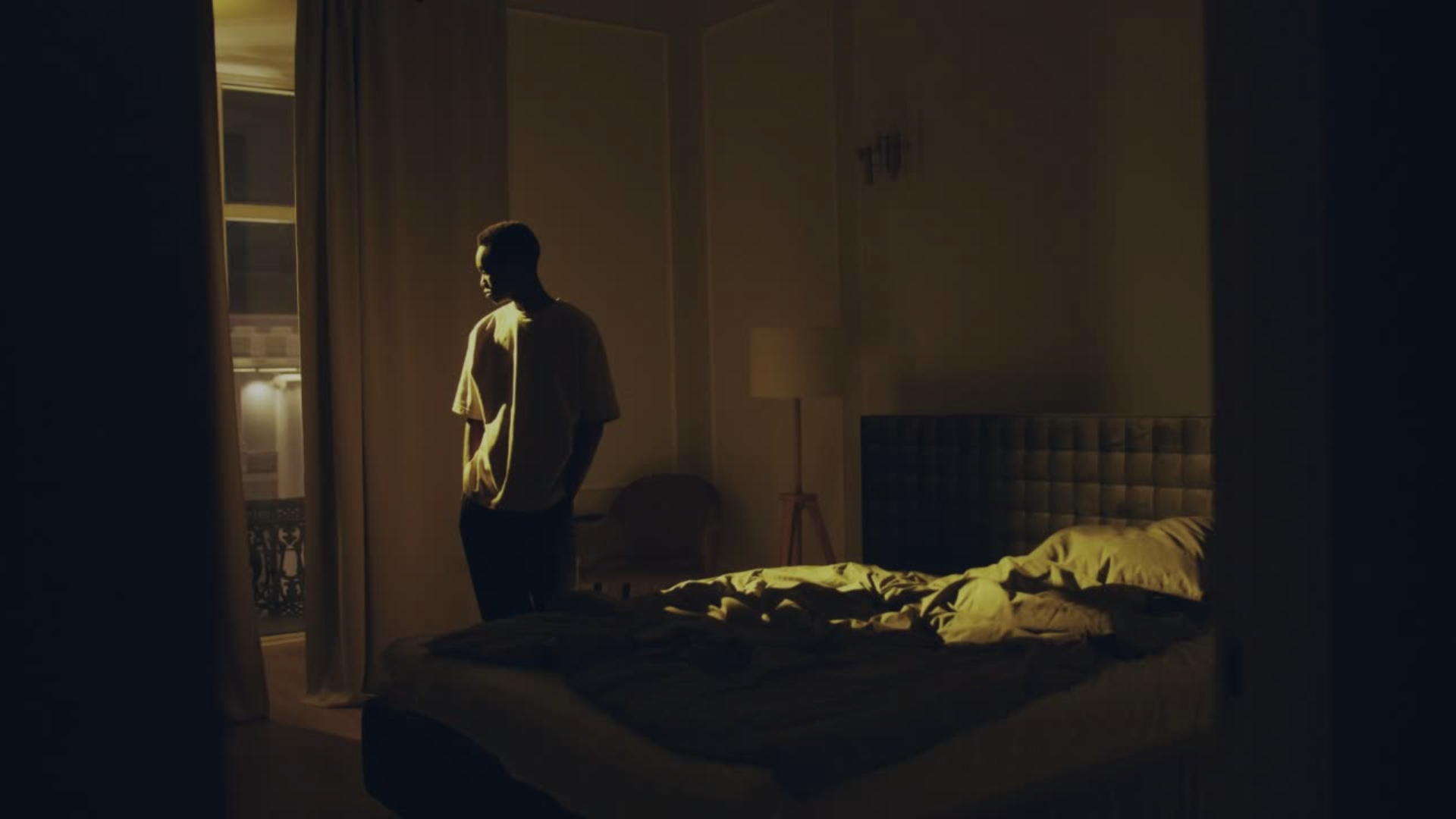
Impacts and predictors of insomnia.
Insomnia disorder symptoms during both night and day strongly affect quality of life and wellbeing, with up to 10% of the adult population affected.
Prolonged sleep latency, difficulties maintaining sleep, fatigue, irritability, anxiety and low mood are all reported complaints and impairments.
Insomnia:
Inability to fall asleep or to remain asleep for an adequate length of time. Insomnia may be associated with physical disease or psychological conditions, such as depression, anxiety or stress
Working with researchers from the Netherlands, Germany and Australia, Professor Colin Espie and Associate Professor Simon Kyle from the Nuffield Department of Clinical Neurosciences reported on the state of the science behind insomnia, and the challenges for the future – highlighting support for the widespread implementation of cognitive behavioural therapy and suggesting that the treatment of insomnia may prove to be a significant preventive strategy in combatting the global burden of mental health disorders.
‘Insomnia, the most common expression of mental disease, is like a Cinderella disorder – seldom receiving proper attention, despite the fact it is the most treatable pre-cursor to depression’
Using data from the China Kadoorie Biobank, researchers from Oxford Population Health conducted a study investigating sleep duration, napping, snoring and insomnia among 500,000 Chinese men and women.
Dr Yiping Chen, Dr Christina Kartsonaki and Professor Robert Clarke worked with colleagues in China to examine the associations of sleep patterns and insomnia symptoms with a range of socio-economic, lifestyle, behaviour and health-related factors.
They found that sleep patterns varied greatly between socio-economic, lifestyle and health-related factors, with the risk of insomnia symptoms being associated with both poor mental and physical health.
Professor Colin Espie on the Sleep Science Podcast
Cognitive behavioural therapy (CBT) and insomnia.
A study conducted by researchers from the Sleep and Circadian Neuroscience Institute (SCNi) found that treating insomnia with online cognitive behavioural therapy (CBT) could reduce mental health problems such as anxiety, depression and paranoia.
Researchers studied almost 4,000 university students from across the UK, with findings showing that sleep disruption is a driving factor in the occurrence of paranoia, hallucinatory experiences and other mental health problems in young adults.
The students were divided into two groups – one who received online cognitive behavioural therapy (CBT) and one who did not, but were still given access to standard treatments.
Cognitive behavioural therapy (CBT):
CBT is a cognitive therapy that is combined with behavioural elements.
The patient is encouraged to analyse their specific ways of thinking around a problem, following which, a therapist looks at the result behaviour and consequences of the thinking and tries to encourage the patient to change their cognition in order to avoid adverse behaviour or consequences
Thought to be the largest ever randomised controlled trial for a psychological treatment for mental health, the study showed that CBT sleep treatment led to large reductions in insomnia as well as improvements in depression, anxiety, nightmares, psychological well-being, and daytime work and home functioning.
The study, led by researchers from the Departments of Psychiatry, Primary Care Health Sciences and Clinical Neurosciences, also included collaborations with colleagues from a number of institutions across the UK.
‘This study is immensely exciting as it not only provides strong evidence for a causal link between psychotic experiences and sleep disruption, but suggests a new therapeutic target for the treatment of psychosis and other mental illnesses’
A smaller version of the study was conducted by Dr Sarah Reeve, a doctoral student at the time, for the BBC2 programme ‘Trust Me, I’m a Doctor’.
Their volunteers kept video diaries and filled out a psychological questionnaire designed to reveal any changes in their mood or emotions.
The results from the experiment, and further explanation of the original study, were also highlighted in a BBC News article showing how just a few nights of bad sleep upsets your brain.
Professor Daniel Freeman on the results of the study into the use of CBT as a treatment for insomnia
Sleep, stroke, brain injury and psychiatric disorders.
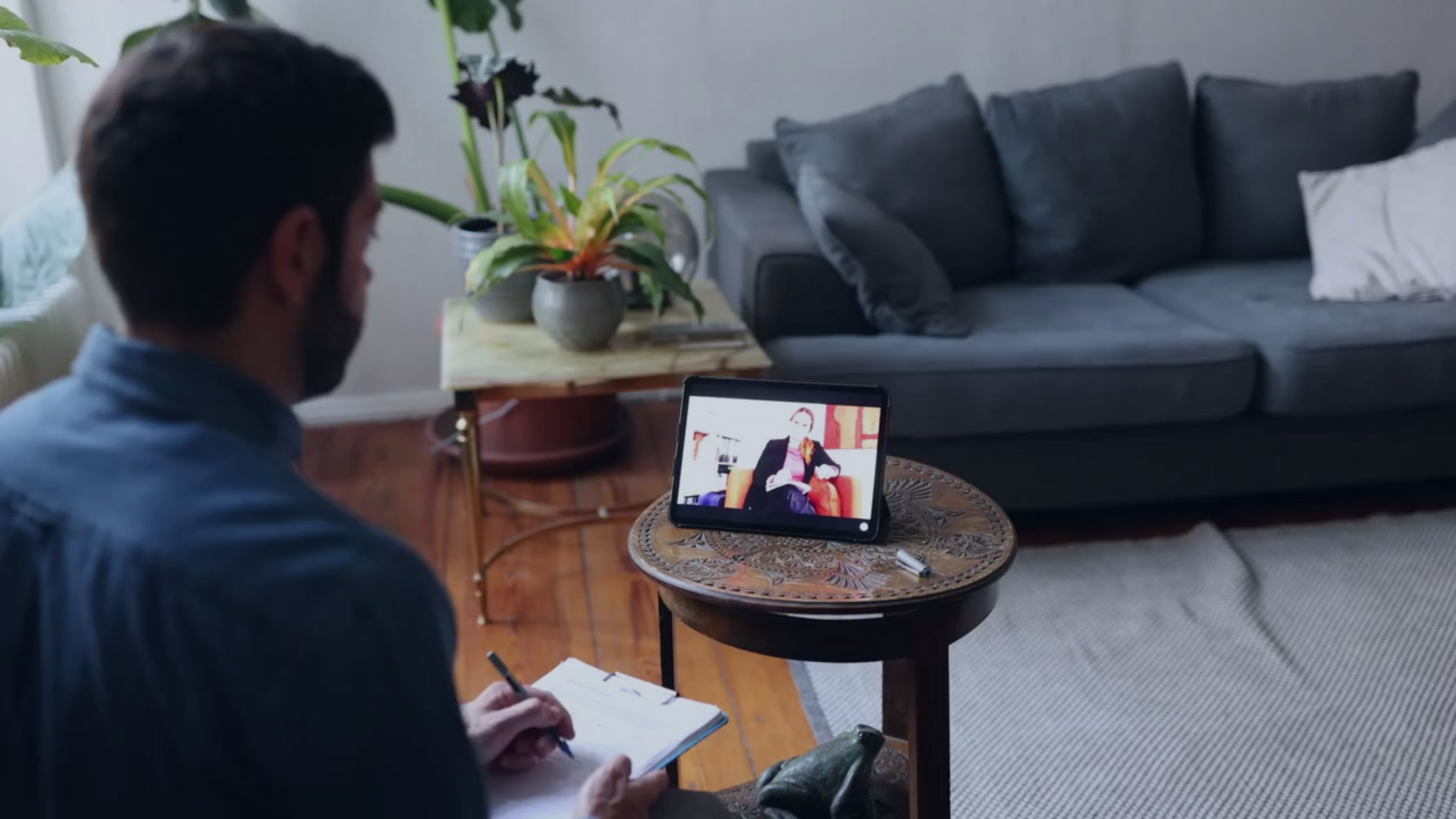
Sleep, stroke and brain injury.
A transatlantic research network was awarded $7million to investigate the interactions between the biology of the body’s internal clock and disordered physiological processes associated with stroke.
Aiming to identify novel targets for stroke therapy based on circadian biology, the European part of the network is coordinated by the Radcliffe Department of Medicine’s Professor Alastair Buchan.
Professor Buchan is working closely with Professors Russell Foster and David Ray from the Sleep and Circadian Neuroscience Institute (SCNi), as the network generates new knowledge with the potential to advance the diagnosis, prevention and treatment of cardiovascular and neurovascular disease.
Part of the Nuffield Department of Clinical Neuroscience’s Plasticity Group, researchers are studying the relationship between sleep and rehabilitation after stroke.
Led by Professor Heidi Johansen-Berg, the researchers have conducted a number of studies into how sleep quality and sleep improvement can be used for stroke survivors.
Investigating sleep in stroke survivors who have difficulty with their movement, researchers found that stroke survivors reported a lower quality of sleep as lower than those in the control group who had not experienced a stroke. The findings were similar for those who have suffered brain injury.
To measure sleep quality, the researchers asked participants to complete the Sleep Condition Indicator (SCI) questionnaire and wear activity monitors during sleep for a week over three time points – when the participant began their stay at a rehabilitation unit, in the middle of their stay, and then again at the end.
Activity monitors showing lots of movement indicated poor sleep quality, whereas someone with good sleep quality would show little movement.
The group are also investigating the feasibility of online sleep improvement programmes such as Sleepio, which was co-founded by Professor Colin Espie from the Department of Clinical Neurosciences, and the use of cognitive behavioural therapy (CBT).
Sleep and psychiatric disorders.
The Oxford Cognitive Approaches to Psychosis team investigates why people experience hallucinations and delusions and uses that knowledge to develop effective treatments for these problems.
Their research shows the importance of sleep problems, worry, low self-confidence, reasoning biases, and defence behaviours to the occurrence of paranoia.
One of their research projects, the SleepWell trial, aims to find out whether treating sleep problems reduced the risk of serious mental health problems in young people, aged 14–25.
16%
In a study of patients with persecutory delusions, only 16% were sleeping well
Another study, the Better Sleep Trial (BeST), evaluated a cognitive behavioural therapy (CBT) intervention for insomnia for individuals with delusions and/or hallucinations within the context of a diagnosis of psychosis.
Co-authored by researchers from the Departments of Psychiatry, Clinical Neurosciences, Primary Care Health Sciences, Oxford Population Health and Orthopaedics, Rheumatology and Musculoskeletal Sciences, the trials found that CBT for insomnia might be highly effective in improving sleep in patients with persistent delusions or hallucinations.
Researchers then went on to analyse the cost-effectiveness of the CBT therapy, highlighting lower costs from NHS and societal perspectives, respectively.
Digital therapies, sleep medicine and the role of light.

Sleep trackers.
Around one in three people report regular sleep complaints, with a growing public interest in wearable devices that can measure how many hours of sleep the wearer gets each night – but just how accurate are they?
Dr Matthew Reid, a former postdoctoral researcher in the Nuffield Department of Clinical Neurosciences, highlighted contemporary research into sleep tracker accuracy in an article for The Conversation.
38%
Sleep tracker accuracy fell to just 38% when recording how long it took participants to fall asleep
Dr Reid’s article demonstrated that only a few studies have investigated sleep device accuracy – with results indicating that trackers are only accurate 78% of the time when identifying sleep versus wakefulness, when compared to polysomnography tests used by experts to diagnose sleep disorders.
This accuracy dropped to 38% when estimating the length of time it took participants to fall asleep.
Studies have shown that the devices underperform in people with insomnia, and can actually increase anxiety, low mood and pre-occupations over sleep loss in patients with the disorder – something investigated in a study conducted by researchers from the Departments of Clinical Neurosciences and Psychiatry and cited by Dr Reid in the article.
Dr Matthew Reid, former postdoctoral researcher, on the accuracy of sleep trackers
Digital therapies.
Hundreds of thousands of people suffering from insomnia, who would usually be prescribed sleeping pills, could be offered an app-based treatment programme instead.
The National Institute for Health and Care Excellence (NICE) has recommended the use of Sleepio, developed by Professor Colin Espie, as an effective alternative.
The Sleepio app uses an artificial intelligence algorithm to provide people with tailored digital cognitive behavioural therapy for insomnia, and has been evaluated by several Oxford studies to investigate the relationship between sleep and mental health.
‘Digital programmes like Sleepio overcome many of the barriers associated with accessing other forms of evidence-based care’
One such study, the largest ever to examine the effects of a fully-automated digital sleep improvement programme based on cognitive behavioural techniques, found that use of Sleepio not only improved insomnia symptoms, but also depressive symptoms in individuals with insomnia, and clinically significant depressive symptoms.
‘I’m honoured that Big Health is able to support our colleagues in the NHS to help safeguard their mental health during these most challenging of times’
In April 2020 it was announced that NHS England was to provide NHS staff with access to Sleepio, and Daylight, to help protect their mental health during the COVID-19 response.
Sleep medicine and pharmacological treatments for sleep disorders.
The Experimental and Clinical Sleep Medicine group focuses on two of the Sleep and Circadian Neuroscience Institute (SCNi)’s key strategic aims – the application of knowledge to deliver evidence-based and condition specific therapeutics to address sleep and circadian rhythm disruption, and the transfer of this knowledge to broader academic, clinical, public and patient communities.
The group, jointly led by Professor Colin Espie and Associate Professor Simon Kyle, aims to understand the mechanisms underpinning chronic sleep disruption, understand the role of sleep disruption in adverse health and develop interventions to treat sleep and circadian rhythm disruption.
The group, jointly led by Professor Colin Espie and Associate Professor Simon Kyle, aims to understand the mechanisms underpinning chronic sleep disruption, understand the role of sleep disruption in adverse health, and develop interventions to treat sleep and circadian rhythm disruption.
‘Clearly, the need to treat insomnia as effectively as possible is very important, as it can have knock-on effects for a patient’s health, their home lives and the wider health system.’
Researchers from the Department of Psychiatry have also been evaluating pharmacological treatments for insomnia.
Professors Andrea Cipriani and Philip Cowen co-authored a study investigating the comparative effectiveness of pharmacological treatments for the acute and long-term treatment of adults with insomnia, where the condition is not accompanied by depression or physical illness.
The study found that two drugs, eszopiclone and Lemborexant, though not licensed for the treatment of insomnia in the UK, were shown to perform better than others.
However, the study did identify that eszopiclone may also cause substantial adverse event such as dizziness and nausea, and safety data on Lemborexant were inconclusive.
The researchers hope their analysis will be of help to clinicians seeking the most appropriate treatment for their patients, highlighting that the study isn’t recommending pharmacological treatments always be used in the as the first line of support to treat insomnia, but that some drugs can be effective, and should be used in clinical practice when appropriate – for example, where improved sleep hygiene and CBT have not worked.
The role of light in circadian rhythm.
Researchers at Oxford aren’t just exploring digital and pharmacological treatments for sleep and mental health disorders – they’re also looking at how our environment impacts us, particularly in relation to natural and artificial light.
Experts from the Sleep and Circadian Neuroscience Institute (SCNi) are investigating the role of light and the consequences and biological effects of the modern light environment.
One such example is how exposure to dim light in the evening can affect circadian health.
The research, led by Professor Stuart Peirson, shows that dim light in the evening delays circadian rhythms in the brain and other organs such as the heart, liver and adrenal glands. This increases our alertness before bedtime and increases sleepiness the next morning.
Professor Peirson has also investigated how different colours of light could affect our ability to sleep.
Findings from the research showed that, out of green, blue and violet, it was green light that produced the most rapid sleep onset, followed by violet, with blue light having the lengthiest onset.
Professor Russell Foster explains the role of light in regulating our bodies, and discusses the implications of today’s almost constant exposure to light
In the industrialised modern world we spend, on average, 90% of our lives inside buildings, meaning that the built environment is a primary moderator of the light to which we are exposed.
An interdisciplinary network, Sleep and the Rhythms of Life, is looking to answer some of the key questions about how sleep has been impacted by societal changes over the past century.
The network is led by Dr Sebastian Klinger and Dr Alessandra Aloisi from the Faculty of Medieval and Modern Languages, Professor Sally Shuttleworth from the Faculty of English and Professor Russell Foster from the Nuffield Department of Clinical Neurosciences.
The network’s inaugural seminar featured Professor Foster and focused on sleep, light and architecture, including how light impacts sleep and architectural practices.
In 2020, Professor Foster received the Daylight Award, presented to honour and support daylight research and daylight in architecture.
‘The attention brought to the importance of daylight in human health flagged up the whole relationship between neuroscience and architecture in general’
Improving sleep.
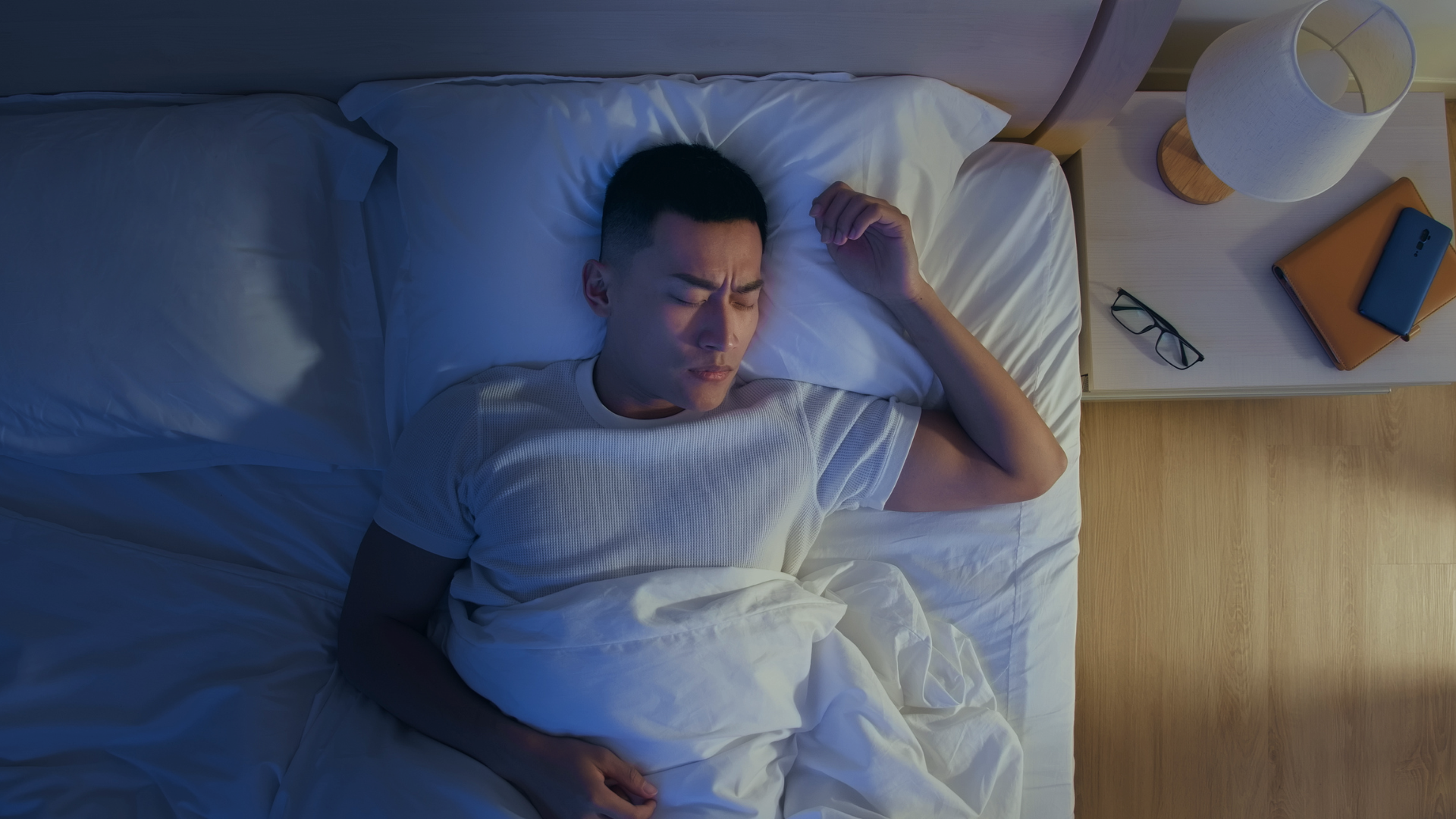
Using the body clock to improve our sleep and health.
Interviewed about his book ‘Life Time’, Professor Russell Foster emphasises that there is no ‘one size fits all’ approach – it’s not helpful to think that everyone should be getting eight hours of sleep a night.
Published in May 2022, Life Time takes its reader on a ‘fascinating and surprising journey through the science of our body clocks’, presenting them with a wealth of information on what scientists have discovered about sleep and biological circadian rhythms.
Some of the book’s surprising revelations include how a walk outside at dawn can ensure a better night’s sleep, how eating after sundown can affect our weight, and the extraordinary effects the time we take our medication can have on life-threatening conditions such as strokes.
Speaking to Audible after the publication of Life Time, Professor Foster discussed topics such as how stress affects sleep, and whether sleep impacts the risk of dementia and Alzheimer’s.
Professor Russell Foster on why sleep is so important
Professor Foster has also provided the Washington Post with tips on not waking up jet lagged – including laying off the coffee and alcohol mid-flight, and structuring your plans and packing to avoid last minute frenzy and worry.
Though there might not be a ‘one size fits all’ approach to improving sleep, Professor Colin Espie from the Nuffield Department of Clinical Neurosciences and Dr Bryony Sheaves from the Department of Experimental Psychology have provided ten tips that may help get someone’s sleep back on track.
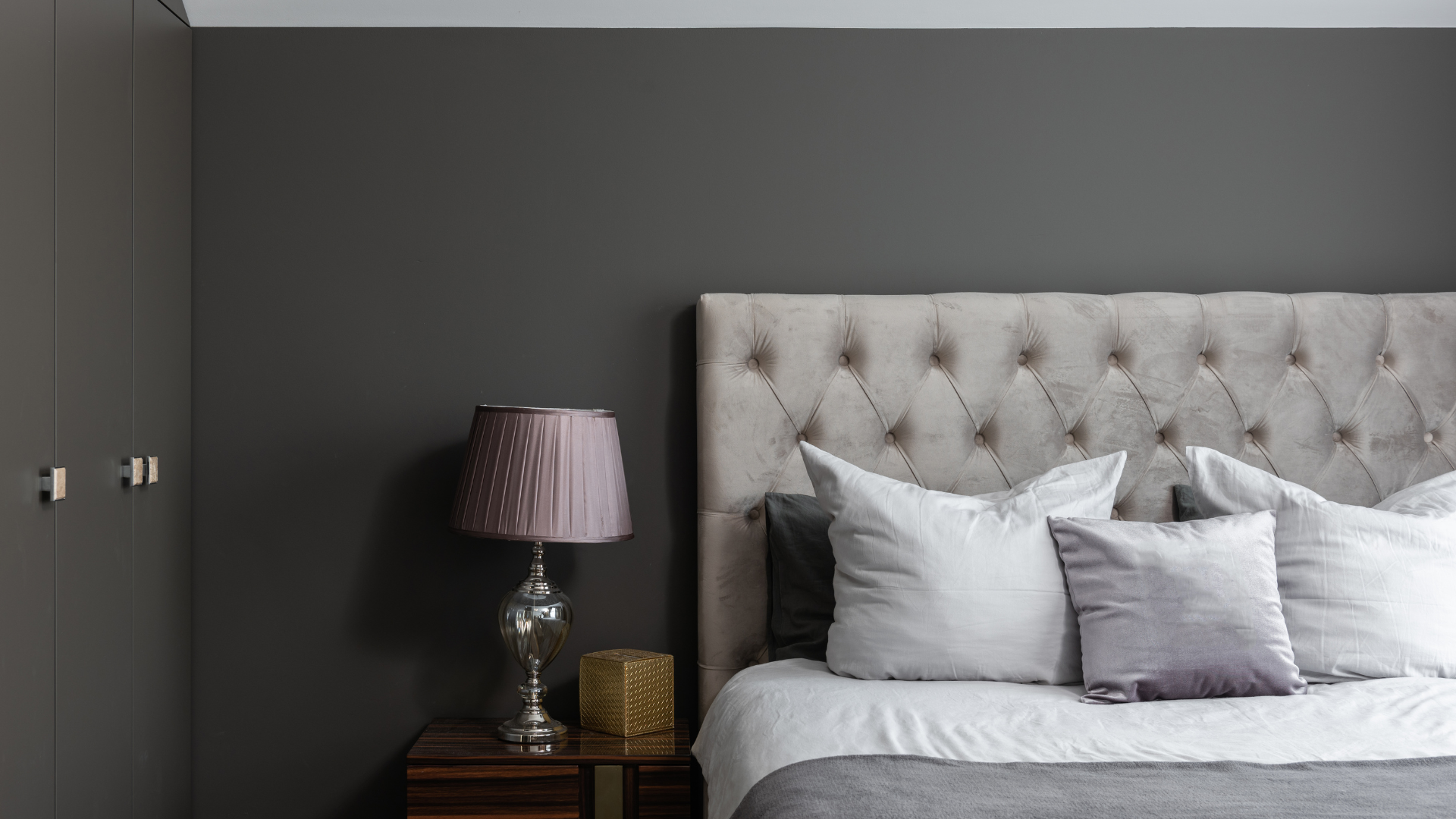
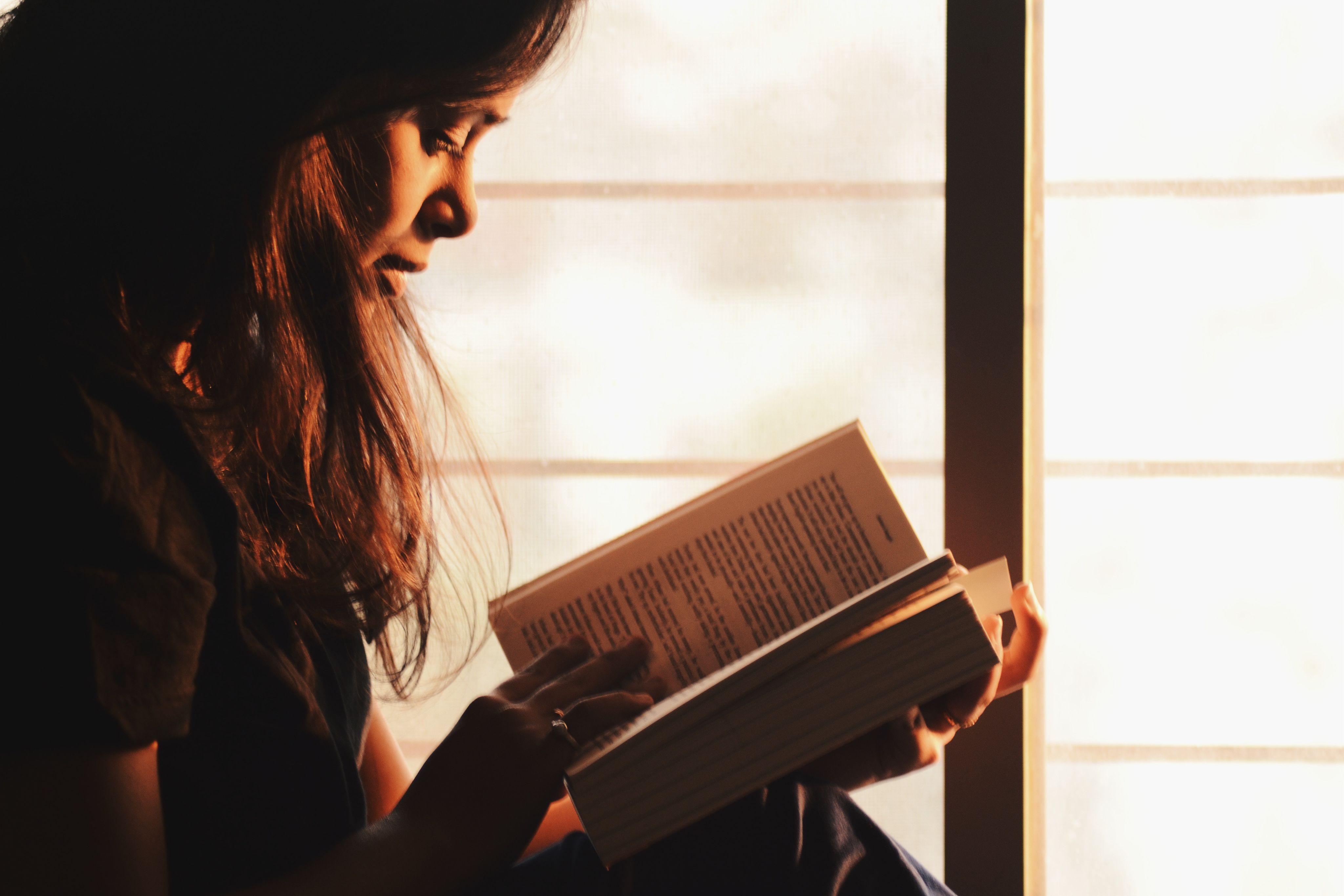
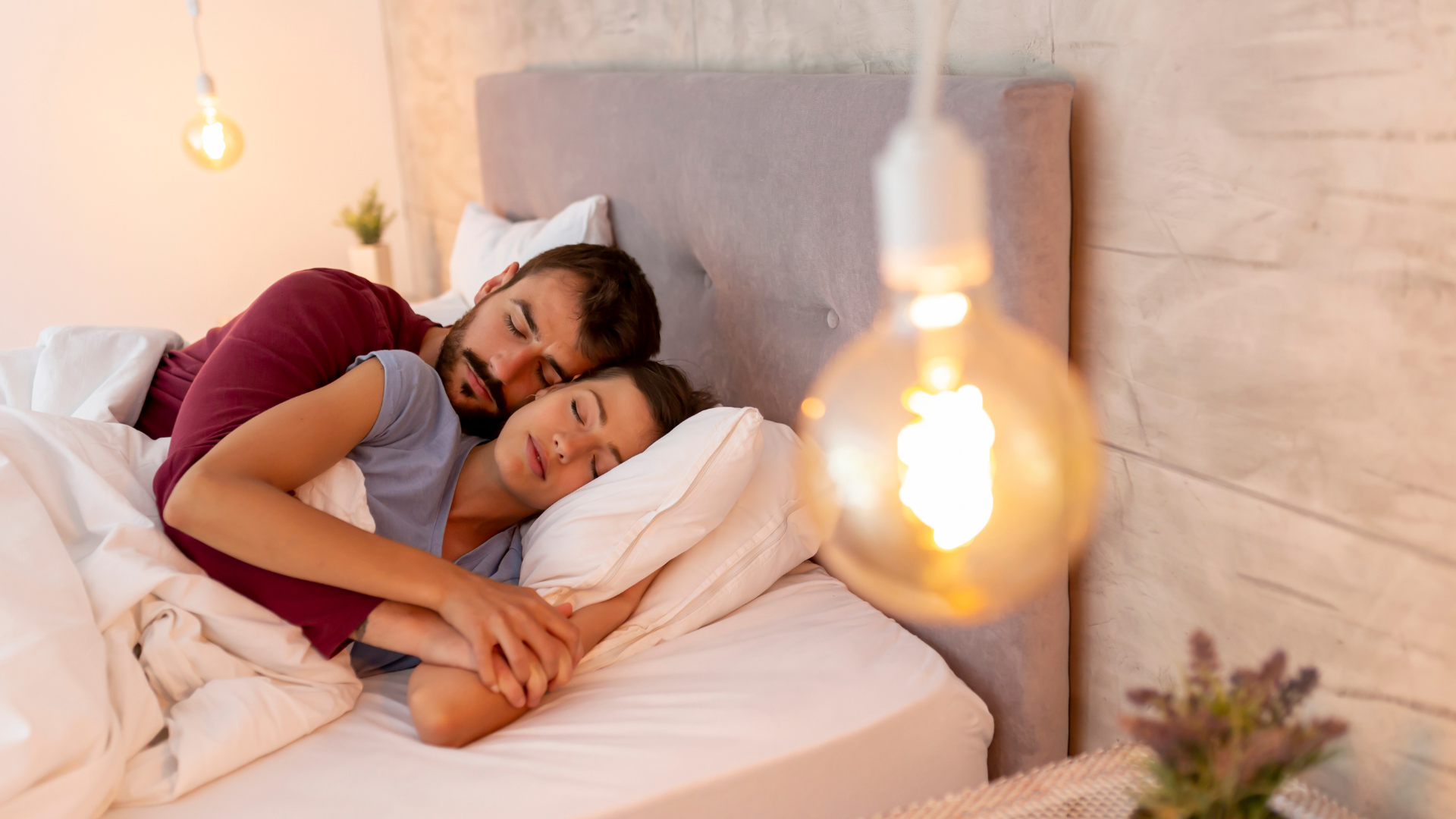
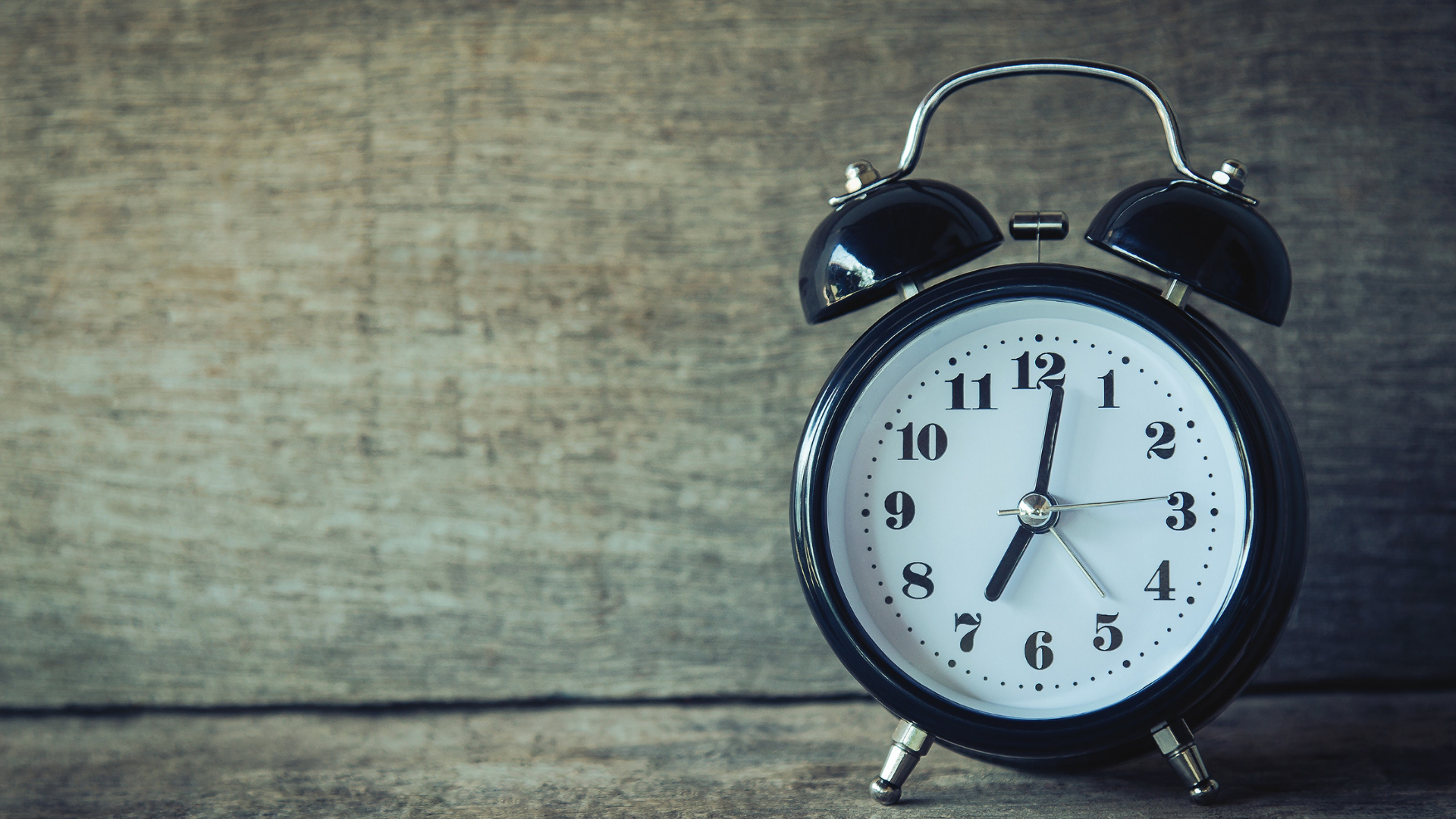
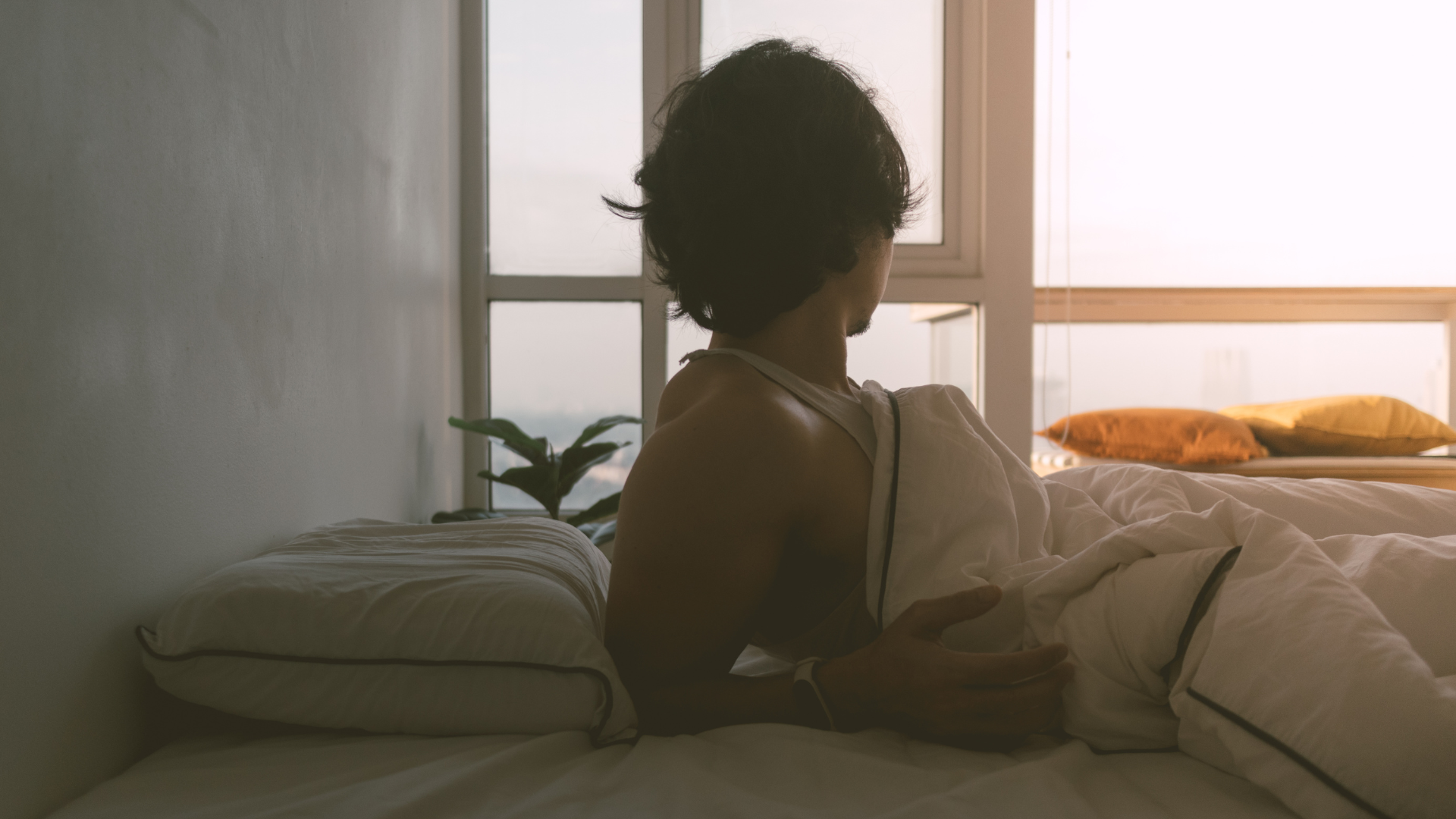
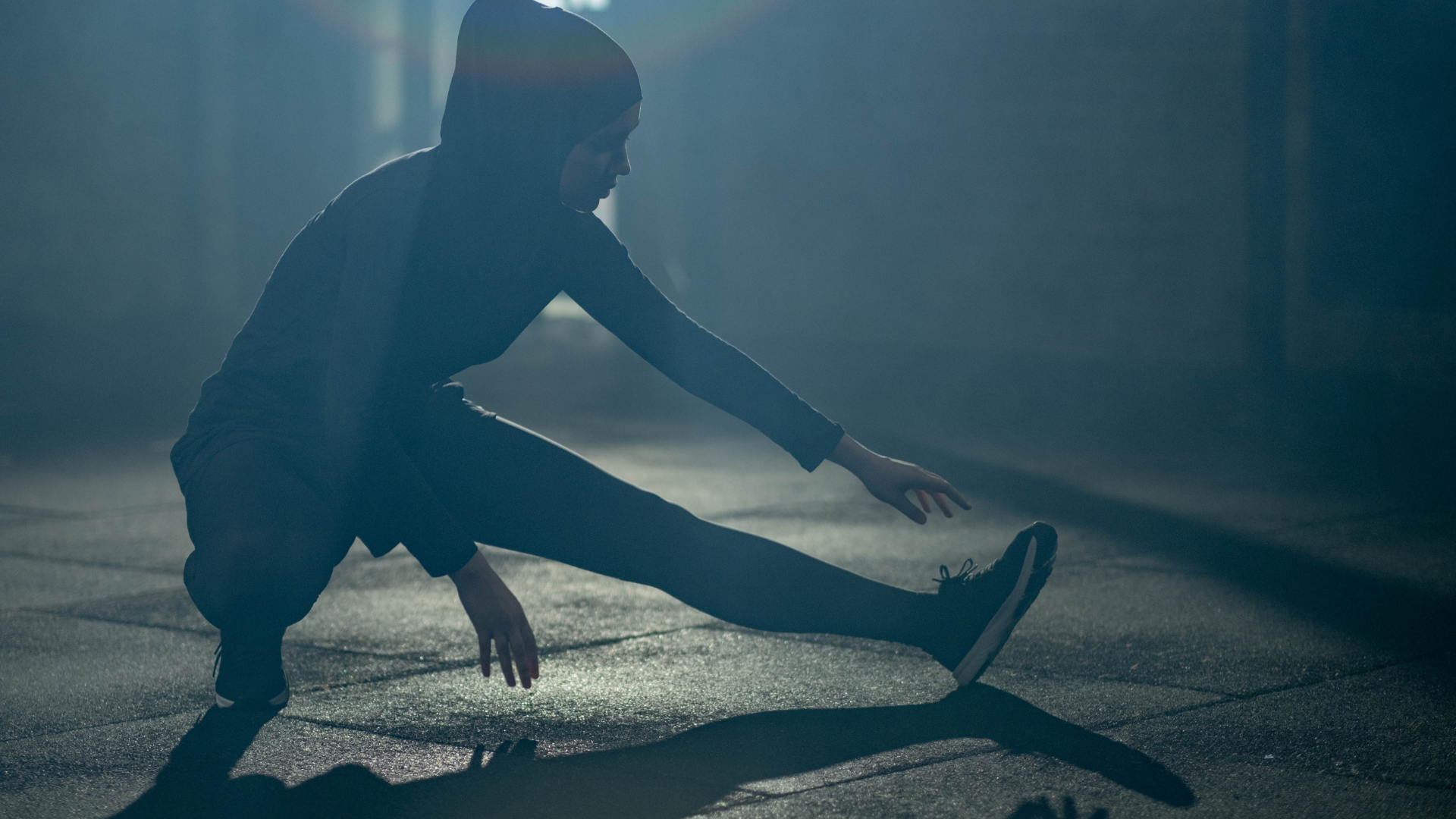

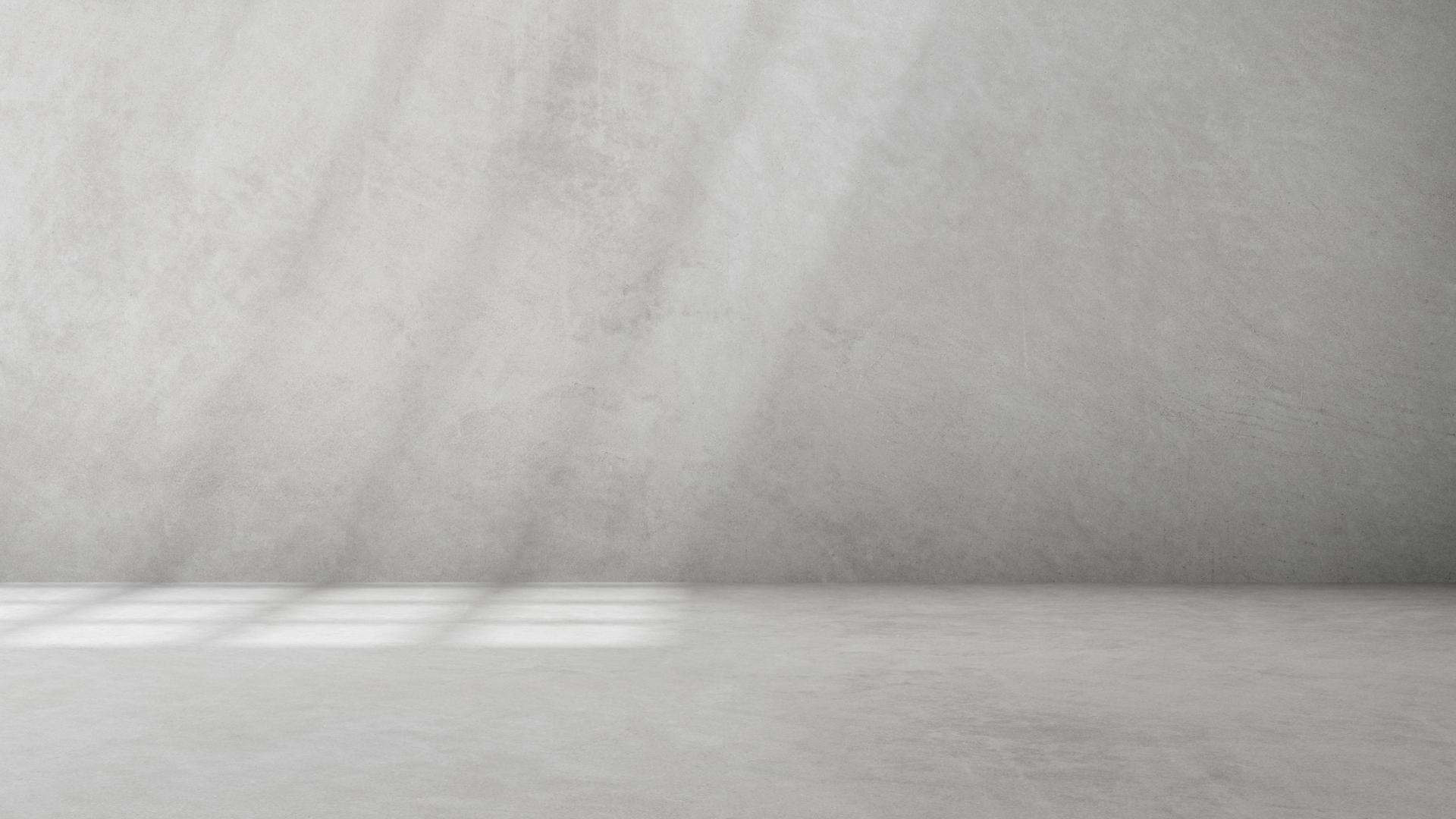
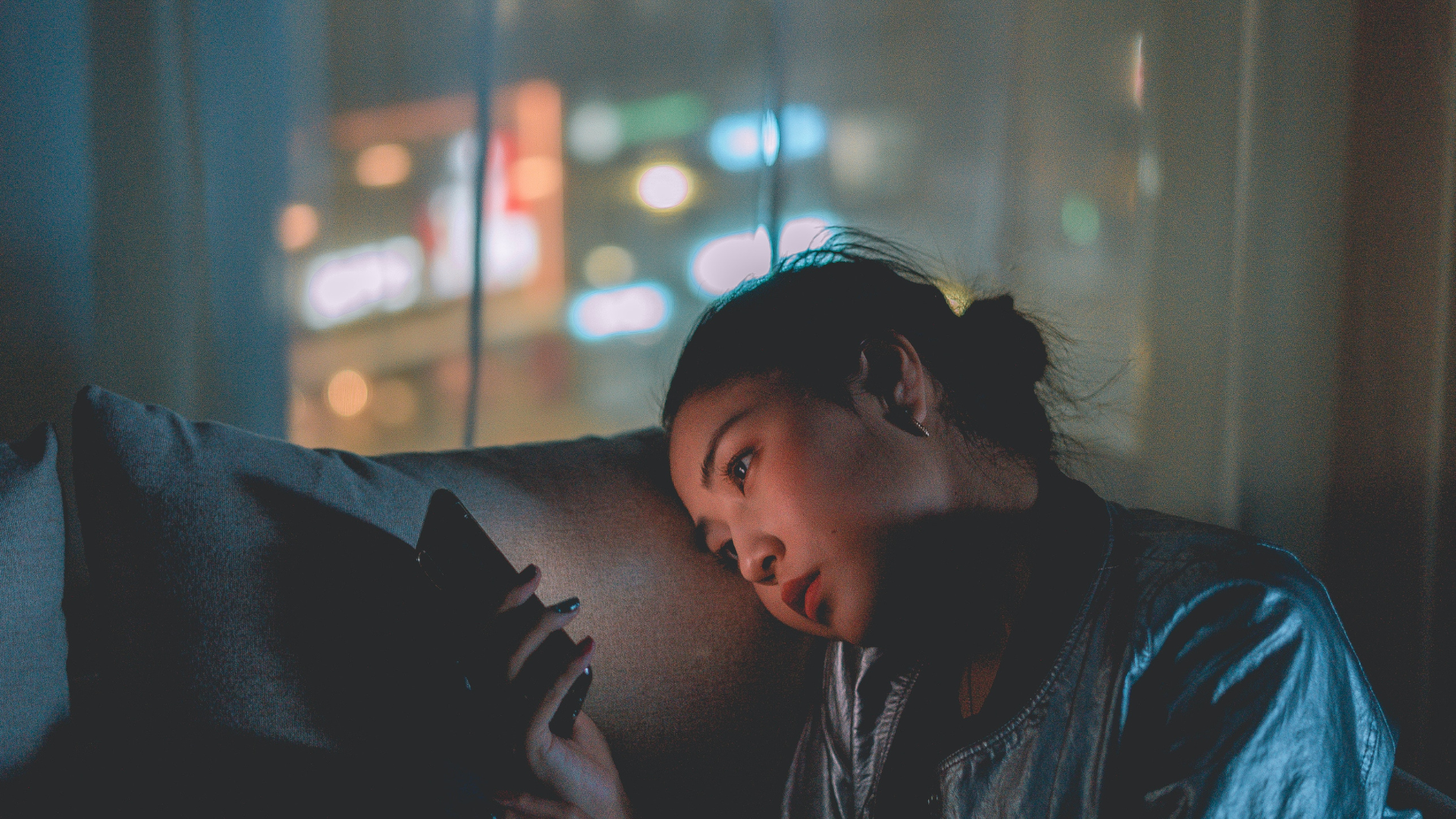
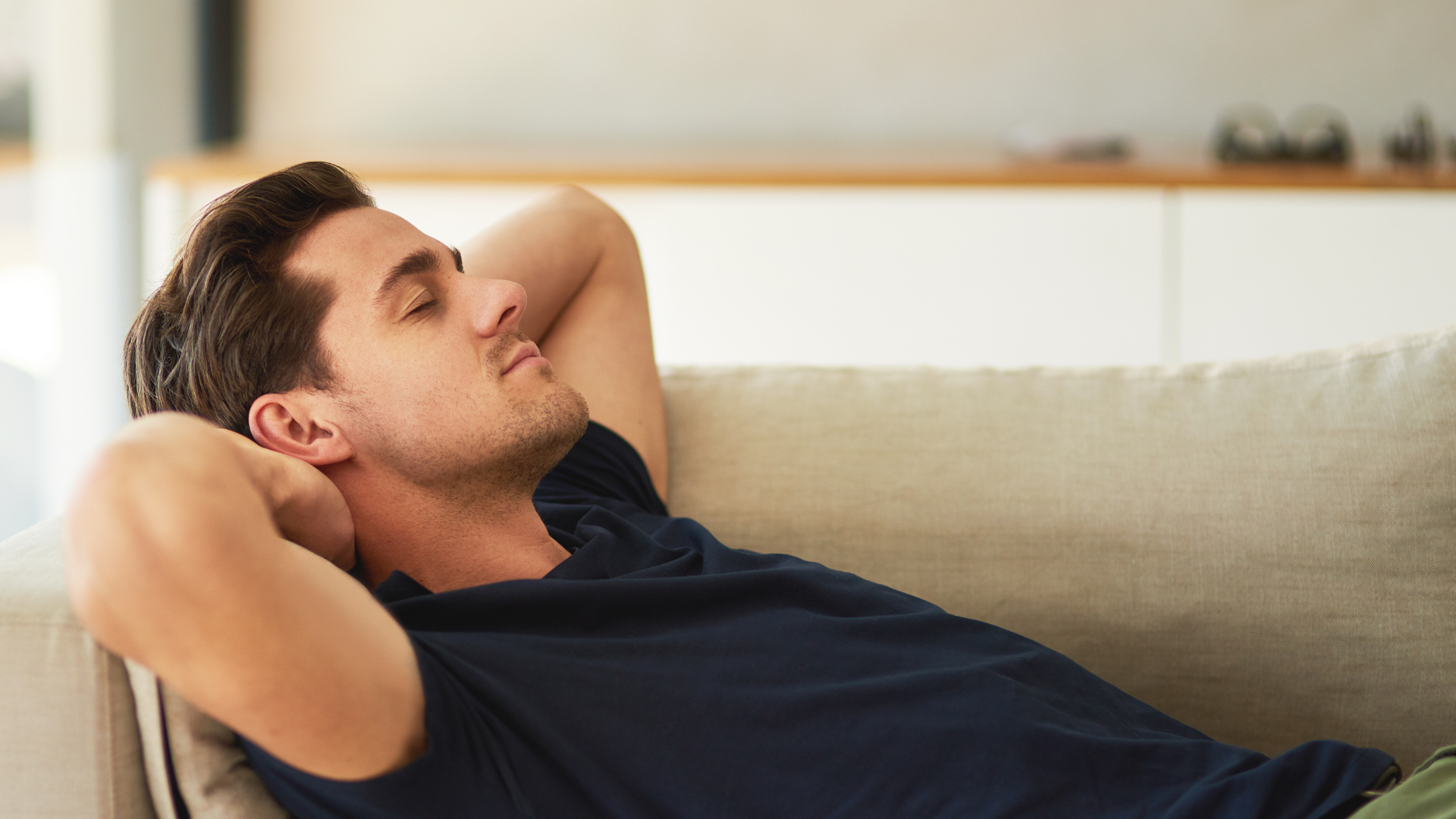
1. Create a sleep friendly bedroom
Is there anything obvious in the bedroom that is getting in the way of a good night’s sleep?
Do you need to get your blinds fixed to block out the light? Is your bedroom too hot or too cold? Too noisy?
Create a bedroom space that is dark and comfortable to best promote sleep.
2. Wind down routine
Take time to prepare your mind and body for winding down before sleep. Set time aside, ideally around 90 minutes, for doing something relaxing and enjoyable.
Some ideas might include reading a book, listening to calming music or practicing relaxation exercises.
If you find that your mind is racing when you head to bed, you could use part of this time to find a way to close off the day.
Perhaps write a diary to take the power out of your thoughts, or make a plan of the things that you would like to do the following day to stop these thoughts popping up when you are in bed.
3. Bed is just for sleep and intimacy
Our minds are clever and create lots of links without us necessarily being aware.
This is why it’s important to create a strong link between bed and sleep by avoiding using bed for other activities that aren’t sleep, for example checking emails or watching TV.
4. The quarter of an hour rule
If you have difficulties sleeping you’ve probably noticed that you spend lots of time in bed awake.
This means that bed might become connected with being awake, frustrated or anxious about sleep.
To promote your bed-sleep connection, follow the quarter-of-an-hour rule: if you notice that you aren’t asleep within around 15 minutes of going to bed, try getting out of bed, go to another room go through your wind down routine until you are feeling sleepy-tired and ready to return to bed for sleep.
There’s no need to clock-watch though; just estimate quarter-of-an-hour.
5. Rise time
If sleep is that elusive state that feels unreachable, it can be tempting to try and catch up on lost hours by having a lie in.
In fact, this is likely to decrease the likelihood of a good night sleep the following night, because you won’t have been awake long enough to build up ‘sleep pressure’ across the day.
Set a regular rise time and see if you can stick to it 7 nights a week. It might be hard work in the short term but will improve your chances of falling asleep each night.
To help with getting out of bed at your rise time, plan some things to help get you going; perhaps a lively piece of music, a nice breakfast or a shower.
6. Keep active
Keeping active can set us up for a good night’s sleep, both physically and emotionally.
Keep active to tire your body ready for sleep (e.g. walking, yoga, cycling) but try to make sure this isn’t too close to bedtime (i.e. within 2 hours of bedtime).
7. Consider what you put into your body
You want to give your body the message that the later part of the evening is for switching off.
So try to avoid stimulants such as caffeine and nicotine in the hours before bed. Alcohol before bed also impacts on sleep by decreasing sleep quality so you are less likely to wake up feeling rested.
Lastly, consider the timing of meals – the purpose of food is to supply energy, so eat at regular times through the day and avoid eating a large meal within four hours of bedtime.
8. Natural light - it's all about timing
Natural light suppresses the production of melatonin (a hormone associated with sleep). Try to avoid bright light before bedtime to promote melatonin production.
Conversely, try to expose yourself to lots of natural daylight when it’s time to be awake (particularly early morning). This will help you to feel awake, alert and ready for the day.
9. Screens and electrical devices
Back-lit screens and devices such as many smart phones, TV’s or laptops contain a large amount of blue light.
This kind of light is the strongest for suppressing melatonin production. Using them last thing at night can therefore disrupt sleep quality. Try to limit your use immediately before bedtime.
10. Be smart with your naps
The longer we are awake, the more likely we are to sleep, because our ‘sleep pressure’ has had time to build up.
To increase your chances of drifting off at night try to avoid naps throughout the day.
Of course, if you feel dangerously tired, do take a short nap (of around 20 minutes) but try to plan this earlier in the day to allow your sleep pressure to build again afterwards.
More from PULSE.



